Agriculture & Environment
Department of Geography, Geo-informatics & Climatic Sciences reviews programmes
Published
3 years agoon
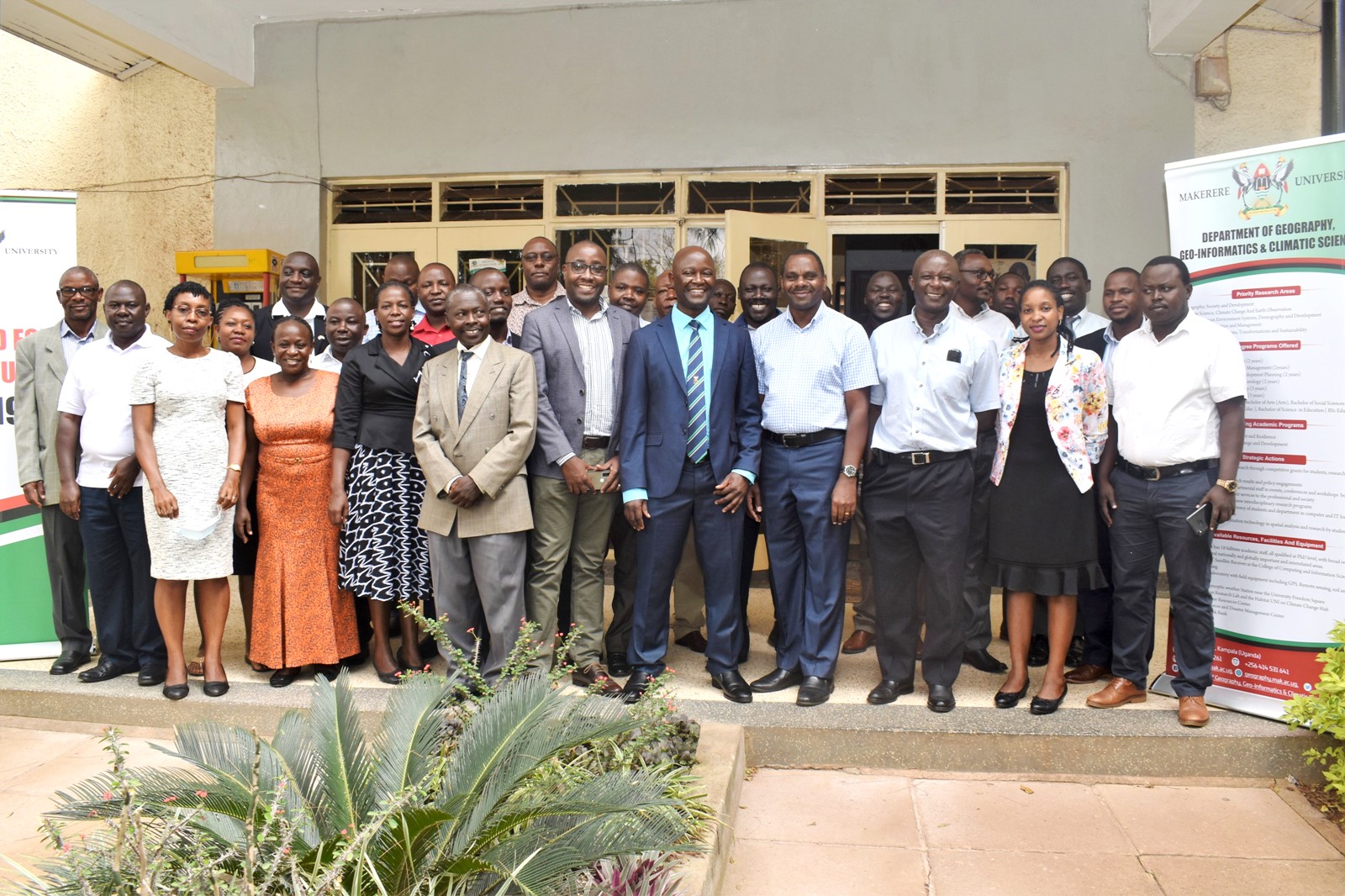
In a bid to align its programmes to the national and global development agenda, the Department of Geography, Geo-informatics and Climatic Sciences, College of Agricultural and Environmental Sciences (CAES), Makerere University conducts periodical reviews in consultation with different stakeholders.
The Department is currently reviewing five programmes namely: Master of Land Use and Regional Development Planning, MSc Disaster Risk Management, Master of Geographical Sciences, Bachelor of Geographical Sciences, and BSc Meteorology.
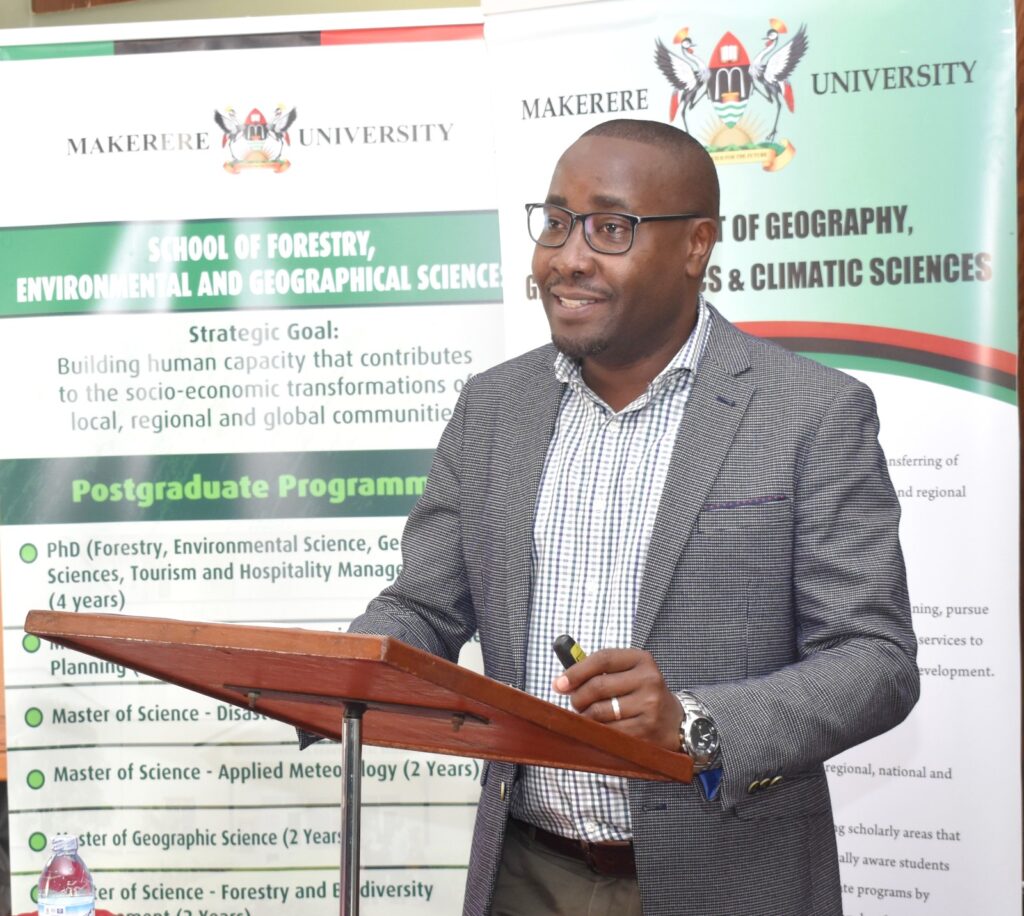
Besides aligning the programmes to the national and global development agenda, the review processes is intended to improve marketability and innovativeness of the programmes, address industry needs and contemporary challenges, improve practical training and interdisciplinarity, and to strengthen analytical skills amongst students.
Since 2017, the department has been engaging different stakeholders including individual staff members, students, alumni and industry actors who have provided enriching contributions. The reviewed programmes will be rolled out in the Academic Year 2023/2024.
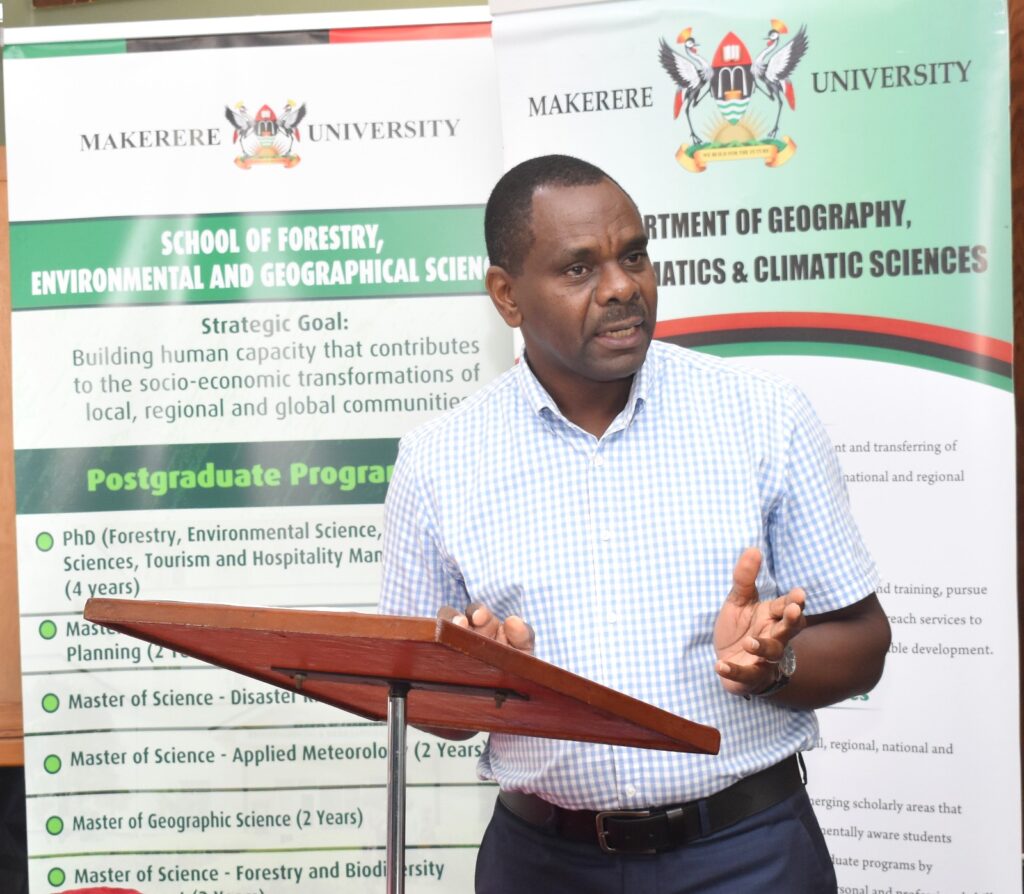
Stakeholder engagement
To further enrich the programmes, the Department held a two-day stakeholder engagement to receive feedback on the proposed amendments. The activity held on 3rd-4th August 2022 at the School of Forestry, Environmental and Geographical Sciences and coordinated by the Head of Department, Prof. Frank Mugagga and Dr Paul Mukwaya was attended by academics from Makerere University College of Engineering, Design, Art and Technology (CEDAT); College of Education and External Studies (CEES); College of Natural Sciences (CoNAS); and the College of Computing and Information Sciences (CoCIS). It was also attended by representatives from Uganda National Meteorological Authority (UNMA); Ministry of Lands, Housing and Urban Development; National Planning Authority;and USAID.
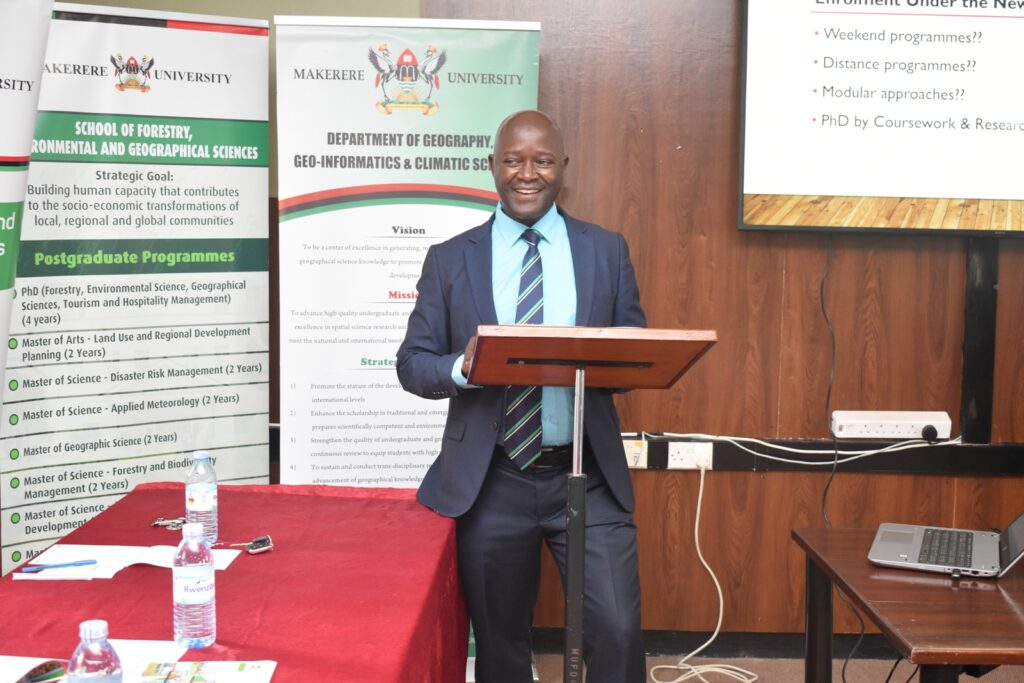
Proposed amendments
1. MSc Disaster Risk Management
The overall objective of the programme is to build national and regional human capacities in reducing risk to disasters and accelerating human security and economic development.
Specific Objectives
- Develop multi-skilled and dynamic professionals with knowledge and novel techniques to assess disaster risks and implement timely measures to efficiently manage disasters
- Impart interdisciplinary research skills for generation of information and knowledge for disaster risk management
- Increase local and regional capacities for anticipation, prediction and management of disaster events
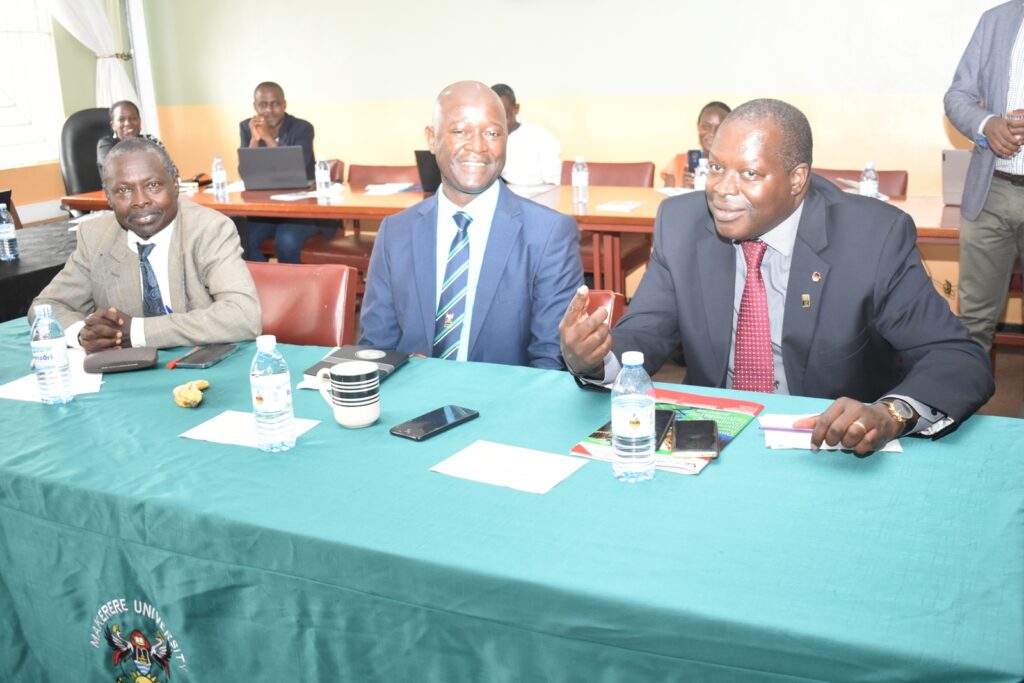
Courses offered
Under the programme, a number of courses are offered including; Principles of Disaster Risk Management, Risk and Vulnerability Analysis, Introduction to Geo-Information Science, Natural hazards Assessment, Legal Frameworks for Disaster Risk Management, Population and Displacement, Extreme Weather Events, Research Methods and Applied Statistics, Disaster Preparedness and Mitigation, Field Exposure and Project Reporting, Earth Observation Techniques for Disaster Risk Management, Economics of Hazards and Disasters, Public Health in Emergencies and Humanitarian Assistance, and Urban Risk Management.
Summary of modifications
All courses have been aligned to the Sustainable Development Goals (SDGs). At the stakeholders’ engagement, proposals were made to include issues of disaster communication & response, resilience, insurance, multi-hazard analysis and climate change. The revised programme will equip students with interdisciplinary research skills to effectively deal with various disasters.
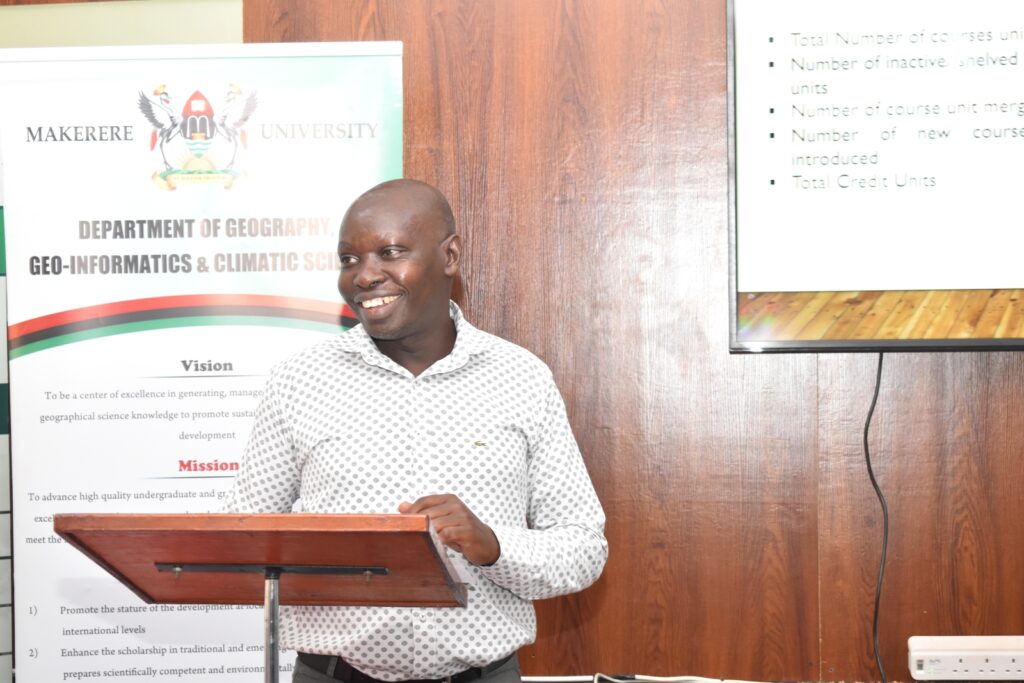
2. Master of Geographical Sciences
The programme aims to build a sought-after human resource pool of graduates with geographical skills and knowledge to address contemporary and emerging issues across scales. It also aims to advance the understanding of Geographical Sciences for graduate students from diverse disciplines, to build capacity in geographic research and information management, and to impart knowledge on the integrating nature of geography for multidisciplinary response to complexities of the world.
Courses offered
The Department offers a wide-range of courses under the programme. These include: Geographical Thought and Applications, Geographical Information Science and Technology, Remote Sensing and Earth Observations, Climate Change Mitigation and Adaptation, Natural Resource Modelling and Management, Applied Economic Geography, Geo-Politics and Development, Soil Conservation and Management, Coastal and lacustrine Geomorphology, Research Methods and Applied Statistics, Land Evaluation and Land Use Planning, Impact Assessment and Auditing, Settlement Analysis and Planning, Population Analysis and Development, Applied Agro-Climatology, Fluvial Geomorphology, Vulnerability and Resilience Analysis and Qualitative Methods in Geography.
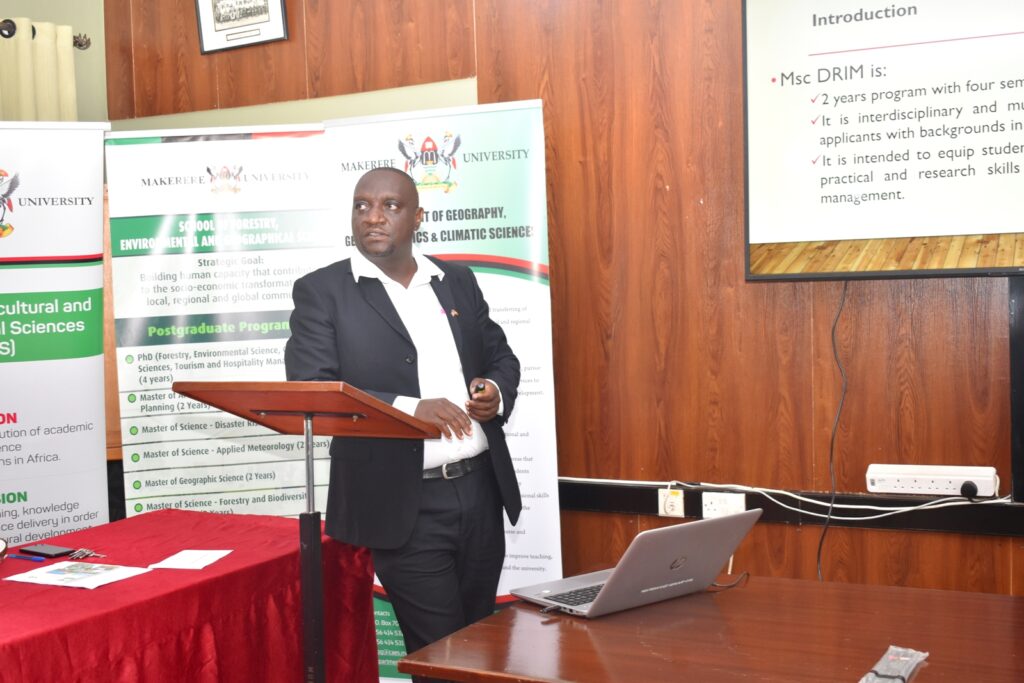
Summary of modifications
The review process aimed to strengthen students’ analytical skills, linkages between theory & practice, and interdisciplinary as well as transdisciplinary focuses. Most of the aforementioned courses remain intact with a few adjustments to improve the content.Proposals have been made to drop the course in Applied Agro-Climatology, merge Coastal and lacustrine Geomorphology (GEO7123) with Fluvial Geomorphology, and to make Vulnerability and Resilience Analysis and Qualitative Methods in Geography new elective courses.
3. Master of Land Use and Regional Development Planning
The programme focuses on how public and/or private land and associated resources can be preserved, developed, and used for maximum social, economic, and environmental benefit. A number of courses are offered in the fields of natural resources management, natural resource economics, public policy, regional and land use planning, environmental impact assessment, applicable law and regulations, government and politics, principles of business and real estate land use, statistical and analytical tools, computer applications, mapping and report preparation, site analysis, cost analysis, and communications skills.
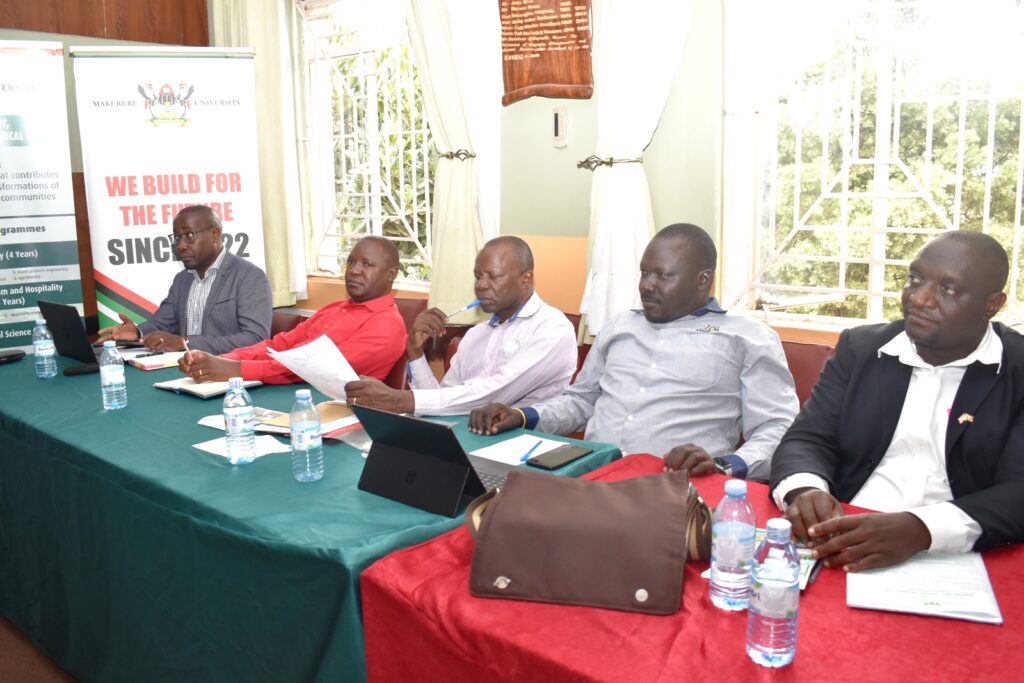
Summary of modifications
Proposals have been made to rename Principles of Disaster Risk Management – Disaster Risk Management and Assessment, and to drop Natural Hazards Assessment, but incorporate its content into Disaster Risk Management and Assessment. Other proposals include; i) renaming Legal Frameworks for Disaster Risk Management – Disaster Law and Policy; ii) Extreme Weather events – Weather Information and Early Warning and incorporate content from Climate Risks and Disasters; iii) Disaster Preparedness and Mitigation course content updated to include aspects of early actions and forecast; iv) renaming Rural Development – Local Planning Economic Development: Theory and Practice; v) Elements of risk management incorporated into Spatial Decision Support Systems; vi) the field course Regional Ecological Planning Studio combined with Integrated Urban Planning and renamed Land Use and Regional Planning Practice; vii) Strategic Environmental Planning and Management strengthened to reflect trends in environmental assessment and monitoring; and viii) Applied Spatial Statistics & Modelling for Planning proposed to become a school-wide course. The new courses include; Qualitative Data Analysis; Advanced Urban Systems Theory; Advances in Regional Science: Principles and Methods; Planning Ethics and Spatial Justice; Planning Law and Governance of Urban and Regional Dynamics or Regional Development Policy Issues and Analysis; Resilience, vulnerability and Regional Development; Inclusive Growth and Development; Infrastructure Geographies; and Critical Perspectives in Agrarian Change.
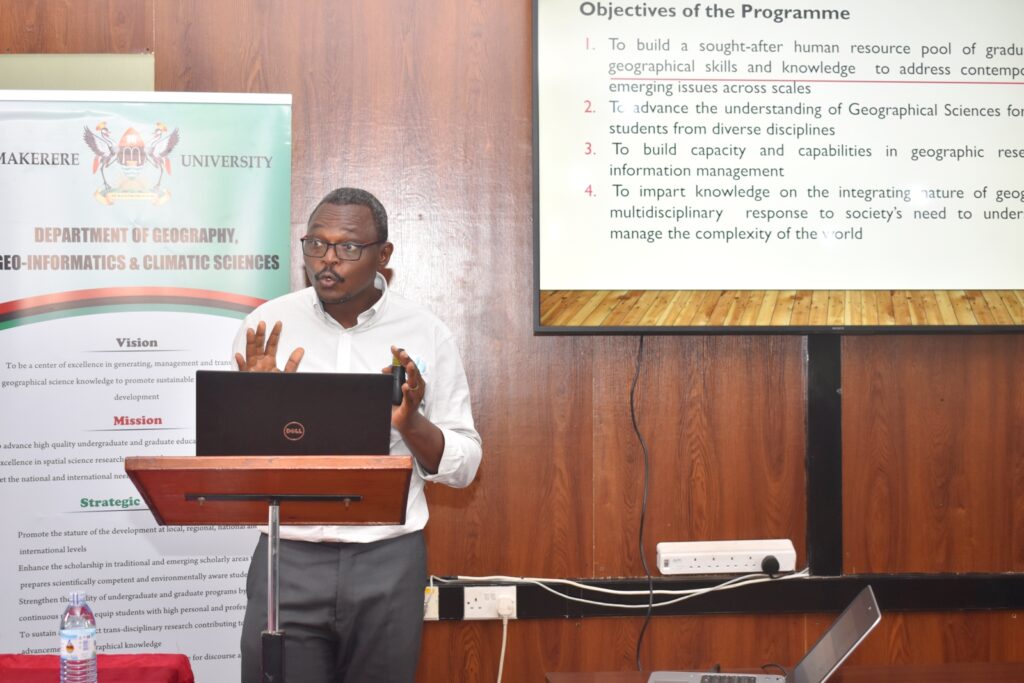
4. Bachelor of Geographical Sciences
This is a three-year Day programme started in the Academic Year 2017/2018 with three students. Intake has grown over time to an average of 30-40 students. The programme admits both A Level and Diploma students. A Level Geography is essential for direct entry.
Objectives of the Programme
The main objective of the reviewed programme is to produce geographers who are knowledgeable and practically skilled in geographical and earth systems sciences, can promote earth stewardship and contribute to sustainable development.
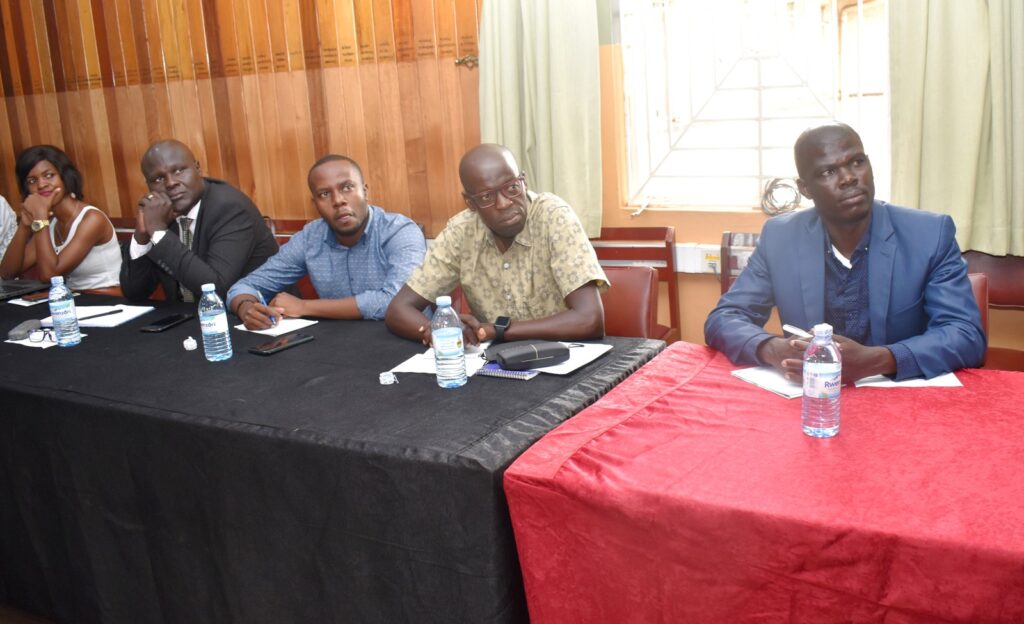
Specific objectives
- Develop competent geographers that have the basic and novel yet transferable knowledge, skills and technologies in geography and earth systems
- Produce competent geographers with knowledge and understanding of the earth’s resource potentials and limits in a geographic context
- Build geographers that have the breadth and depth of knowledge on earth system dynamics and changes
- Train geographers to initiate, plan and execute inquiry and research in topical geographic fields and earth systems sciences
- Develop geographers that have the skills and knowledge in and pathways to attainment of sustainable development
- Train geographers that are adequately prepared to respond to the changing global environmental, and social systems under scarce natural resources
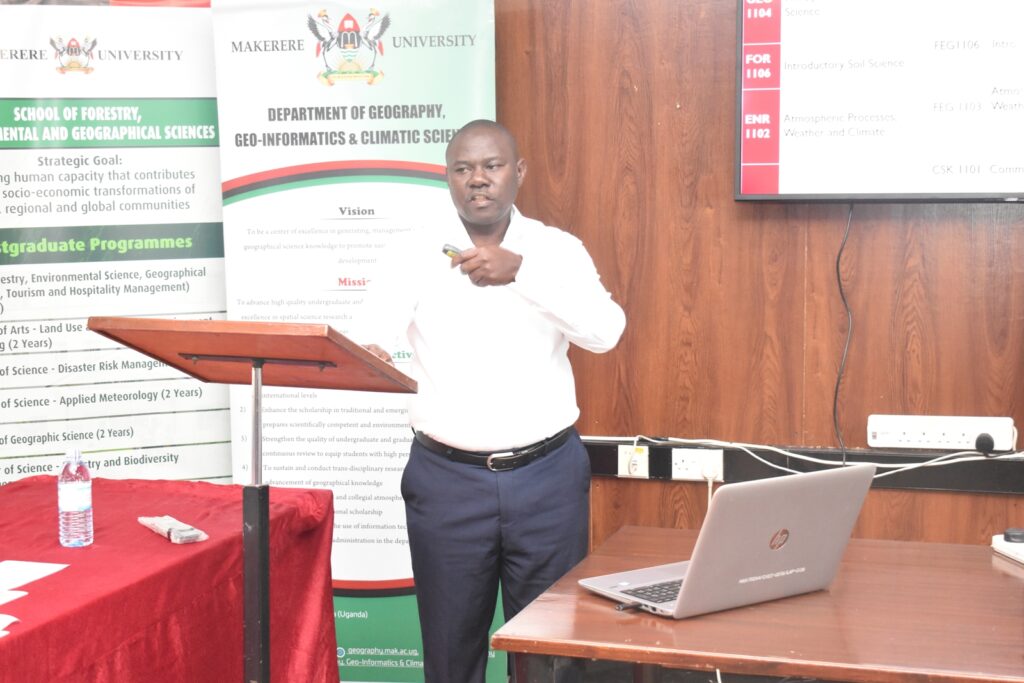
Courses offered
Year 1 – Human Geography, Fundamentals of statistics, Principles of Earth Systems Science, Introduction to Soil Science, Communication Skills, Development Geography of East Africa, Sustainability Science and Development, Fundamentals of Ecosystem Science, Foundations of Cartography and Photogrammetry, and Urbanization and the Environment.
Year 2 – Geomorphology, Applied Cartography and Photogrammetry, Earth Observation Systems, Techniques and Applications, Global Environmental Change, Population Geography, Agriculture, Environment and Development, Risk Assessment and Management, Soil Conservation: Methods and Applications, Fundamentals of hydrology, Sustainable Energy Transitions, Research Methods, Climatology, Advanced Quantitative Techniques in Geography, Principles of Geographical Information Systems (GIS),Economic Geography, Settlement Systems Analysis, Project planning and Management, Development Geography of Africa, Biogeography, Principles of Resource Assessment, Development and Management, Lacustrine and riverine Landscape Management, Arid and Semi – Arid Land Management.
Year 3 – Geographical Thought and Philosophy or Geographical Thought and Practice, Advanced Climatology, Geo-Statistics and Modeling, Advanced Geographical Information Systems (GIS), Demography, Political Geography, Military Geography, Geography and Public Policy Analysis, Highland and Mountain Resource Management, Applied Hydrology / Advanced Hydrology, Land Use Planning and Management, Environmental Degradation and Conservation, Systematic Geography of Uganda, Advanced Geomorphology, Applied Earth Observations Systems Techniques and Applications, Research Project and Dissertation, Urban Geography, Transport Geography, Regional Development Planning, Regional Development Geography of East and South East Asia, Road Safety: Theory and Applications, Environmental Disaster Assessment, and Adaptation and Mitigation to Climate Change.
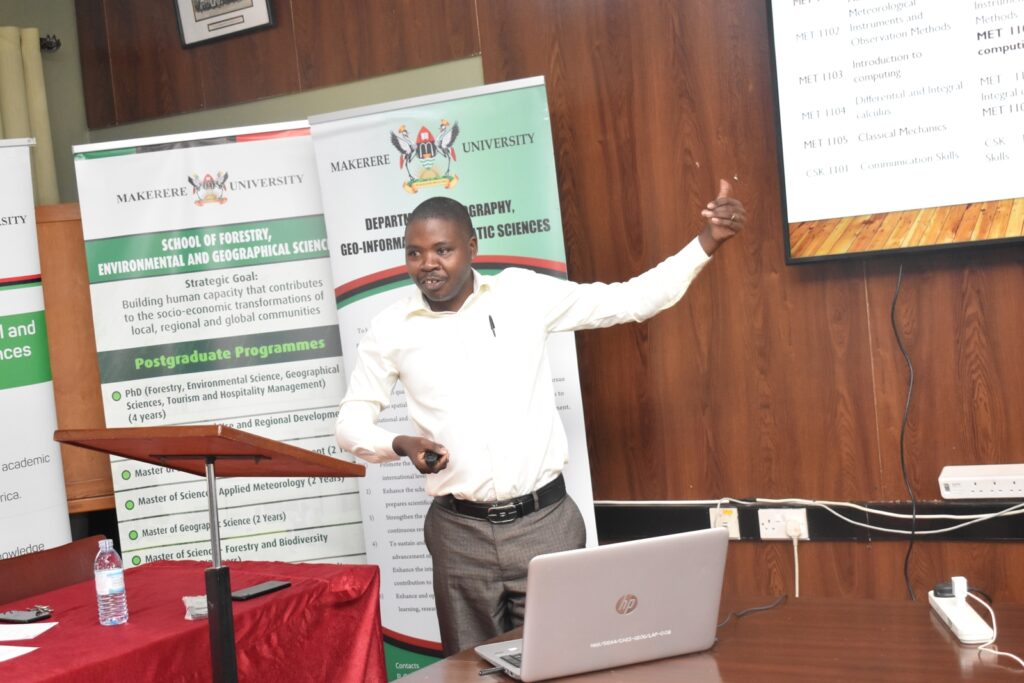
Proposed modifications
i)Human Geography course has been updated to include human environment interactions and implication ii) Introductory Statistics changed to Fundamentals of Statistics, iii) Principles of Earth Systems Science revised to provide foundation for climatology, biogeography, hydrology and geomorphology, iv) Communication skills introduced, v) Atmospheric Processes, Weather and Climate no longer mandatory for BGS students but for other students in the school, vi) Development Geography of East Africa revised to include aspects on constraints to development and possible solutions, vii) Fundamentals of Ecosystem Science revised to integrate issues of Natural selection and adaptation by plants and animals, as well as restoration ecology, viii) Global Environment Change reviewed to integrate issues of land use and cover change dynamics, biodiversity and environmental change assessment, ix) Energy Analysis and Planning changed to Sustainable Energy Transitions, x) Feminism and Geography dropped, xi) Fundamentals of Hydrology introduced, xii) Lacustrine and Riverine Landscape Management course focusing on lake and river systems resource utilization and management introduced, xiii) Project Planning and Management introduced, xiv) Highland and Mountain Resources Management changed to Mountain Sustainable Resource Management, xv) Applied Hydrology and Environmental Degradation and Conservation introduced, xvi) Tourism and Recreation Resource Management as well as Regional Development Geography of Europe and Asia and Wildlife Ecology and Management dropped, xvii) Regional Development Geography of East and South East Asia introduced.
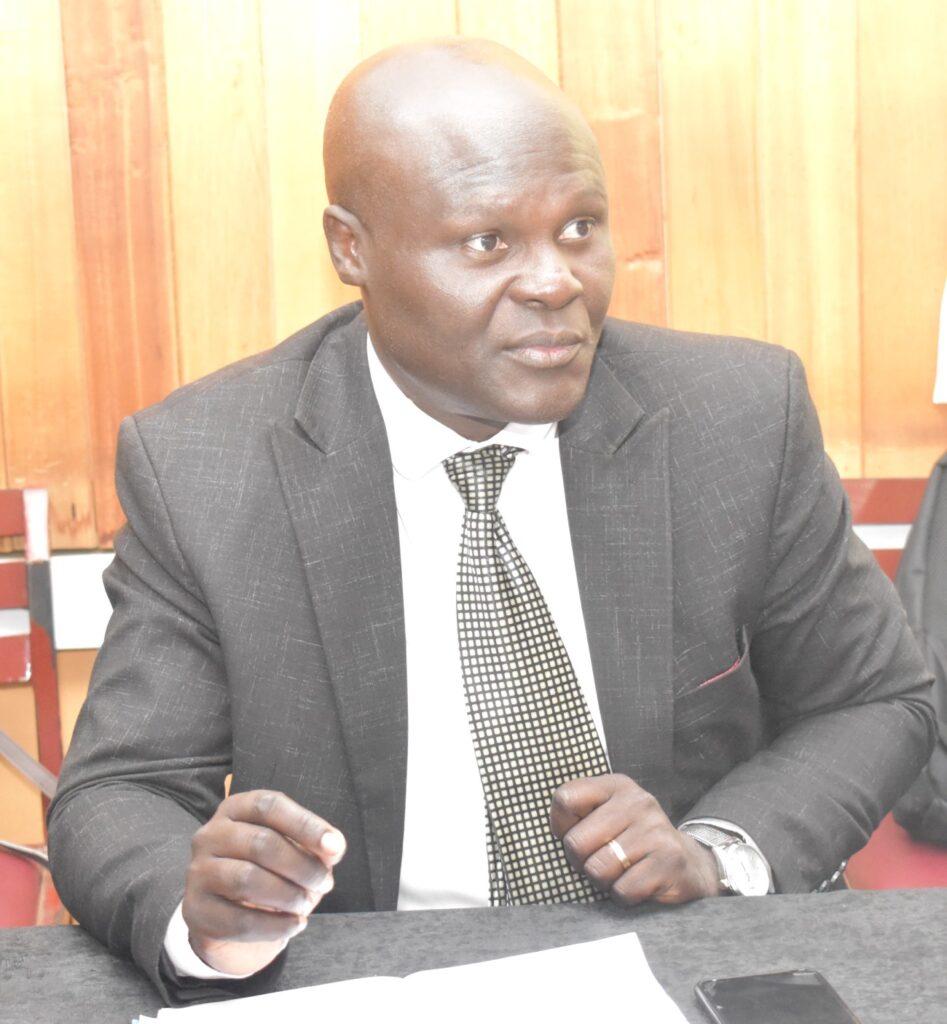
5. BSc Meteorology
This is a three-year Day programme that started in the Academic Year 2011/2012 with 4 students.Intake has been growing over time with an average of 25-35 admitted. The programme admits both A Level and Diploma students. A Level pure mathematics is essential for direct entry.
Summary of proposed courses
Year 1 – Introduction to Atmospheric Science, Meteorological Instruments and Observation Methods, Differential and Integral calculus, Classical Mechanics, Introduction to computing in meteorology, Communication Skills, Thermodynamics, Matrix Algebra and Vector analysis, Tropical Meteorology, Computer programming in Meteorology, Numerical Methods in Meteorology, and Introduction to gender.
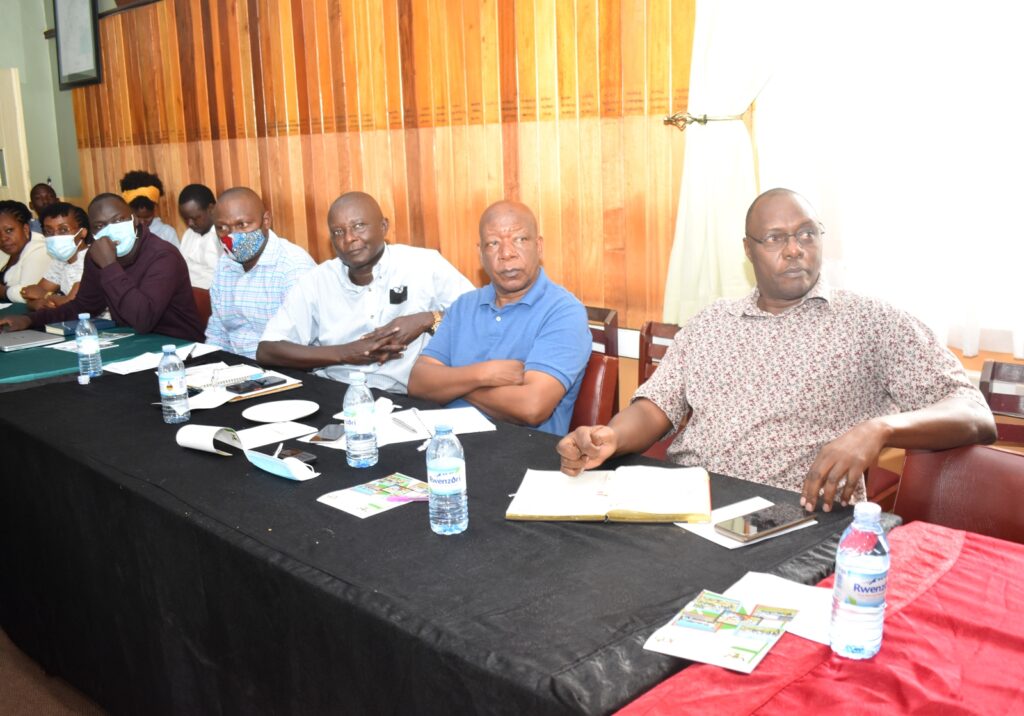
Year 2 – Synoptic Meteorology,Advanced Atmospheric Science, Atmospheric Dynamics, Cloud Physics, Biometeorology, Soil Science and Management, Physical Meteorology, Foundations of climate change science, Weather Analysis and Forecasting, Research Methods, Principles of Geographical Information systems, Renewable energy resources, Marine Meteorology, and Data Information Management in Meteorology.
Year 3 –Remote Sensing in Meteorology, Boundary layer Meteorology, Hydrometeorology, Agro-meteorology, Advanced GIS, Meteorology and Human Environment, Urban Climatology, Elements of Environmental Pollution and Control, Aviation Meteorology, Adaptation and mitigation to Climate Change, Research Project, Societal Climate services, and Integrated Water resource management.
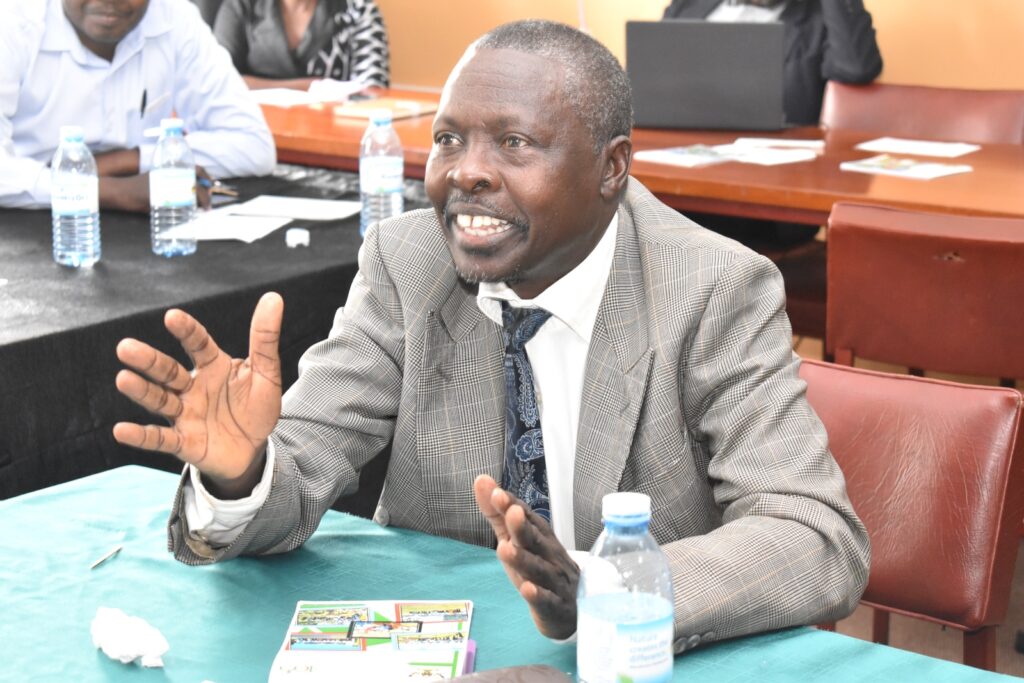
Participants proposed to include climate change and communication skills in all programmes.
The stakeholder engagement was graced by the Deputy Principal, CAES, Prof. Yazidhi Bamutaze who emphasized the need to reflect on the relevance of all programmes offered as the University marks 100 years of existence. The workshop was attended by among others, the Principal, College of Computing and Information Sciences, Makerere University, Prof. Tonny Oyana.
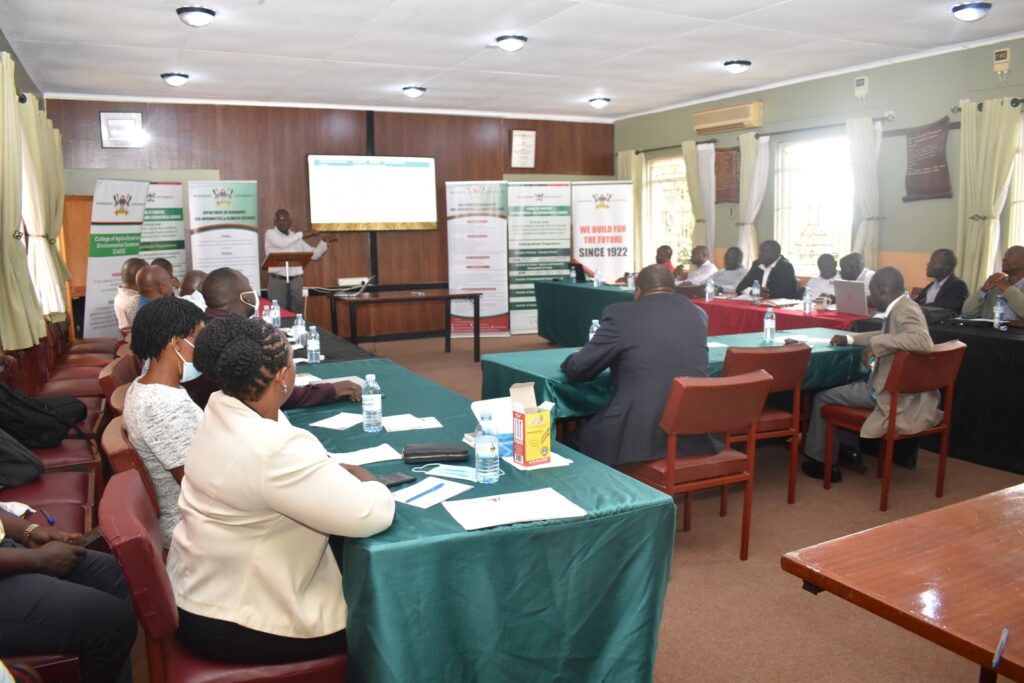
You may like
-
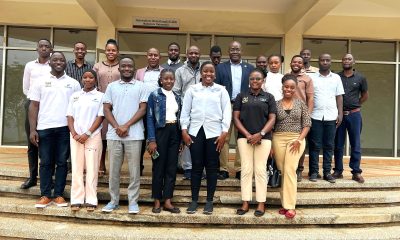

SophiA Project Upgrades Medical Infrastructure at Buvuma Health Centre IV, Trains Technicians for Maintenance Works
-
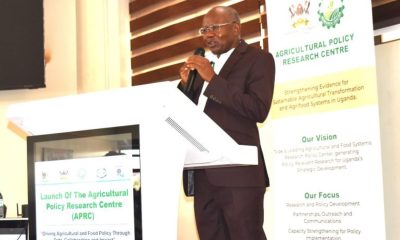

APRC Trains Graduate Students & Stakeholders in the Use of the African Agriculture Adaptation Atlas
-
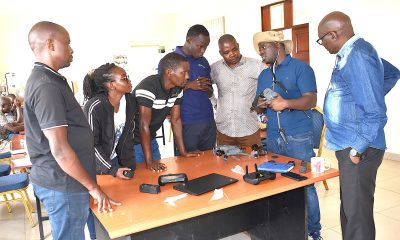

NbS4Tea Project Team Makes Great Progress, Deploys Drones for Data Collection
-


Mastercard Foundation Board pays its inaugural visit to Makerere University
-


CoNAS Participates in the 2025 National Science Week Exhibition
-
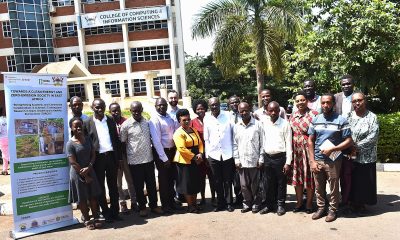

New Mak-CAES Project to Spur Green Growth in East Africa
Agriculture & Environment
SophiA Project Upgrades Medical Infrastructure at Buvuma Health Centre IV, Trains Technicians for Maintenance Works
Published
2 days agoon
July 9, 2025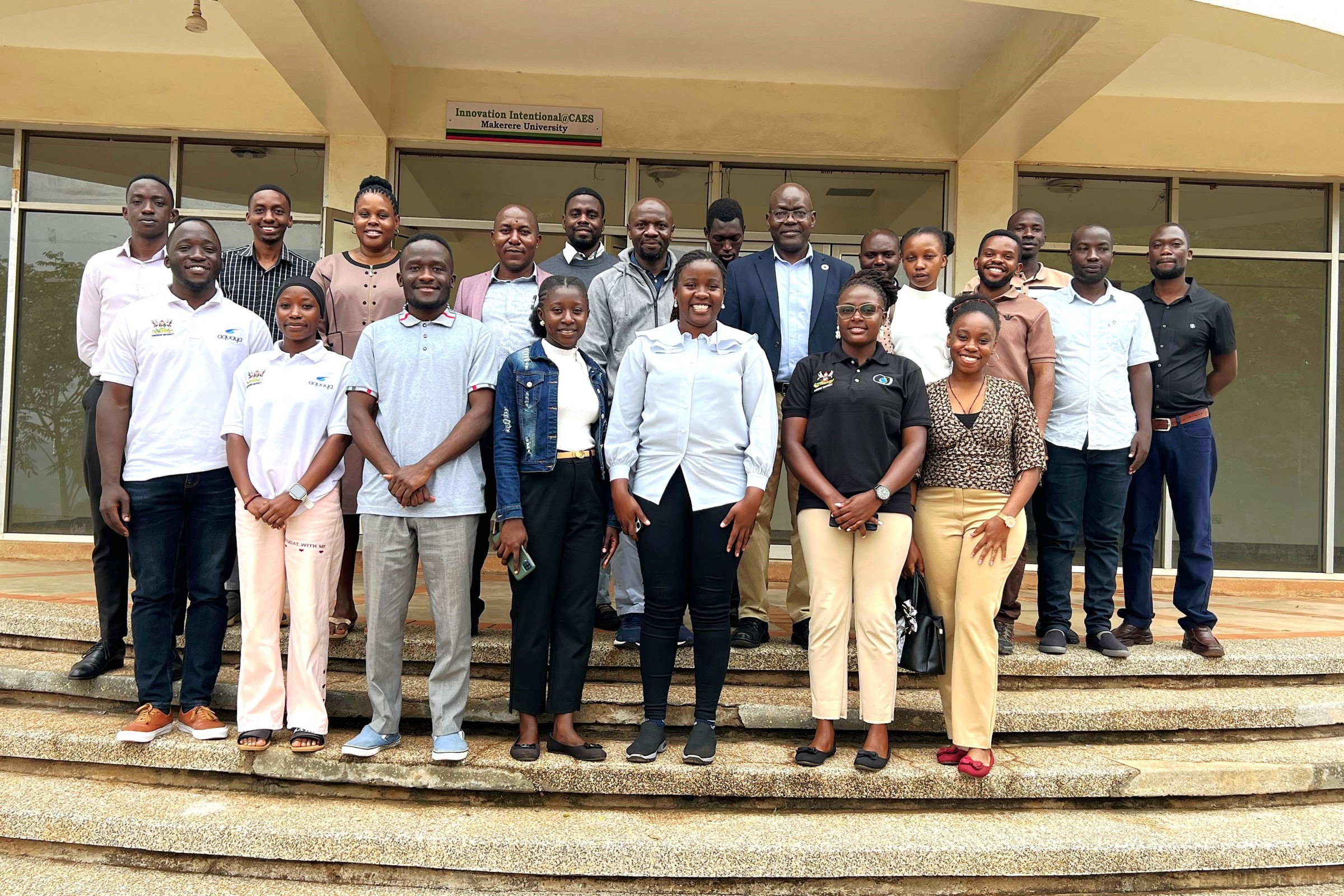
Overview of the Sustainable Off-Grid Solutions for Pharmacies and Hospitals in Africa (SophiA) Project
Despite ongoing urbanization across Africa, the majority of the population still resides in rural and remote areas, where infrastructure development remains limited. These regions face significant challenges such as lack of access to healthcare, education, clean water, and reliable electricity, contributing to higher rates of illness and poverty compared to urban centres. According to reports, Sub-Saharan Africa has approximately 120,000 public health facilities (22,000 hospitals and 98,000 health posts), of which around 26% lack any electricity access, and only 28% have reliable power supply.
Access to good healthcare is critical for sustainable development. However, many rural medical centres operate under harsh conditions – using polluted water, lacking cooling for medicines, and facing poor sanitation – largely due to unreliable electricity and water supply. Although half of the population in Sub-Saharan Africa lacks electricity, the region has abundant renewable energy potential that can be effectively harnessed through off-grid solar photovoltaic (PV) systems.
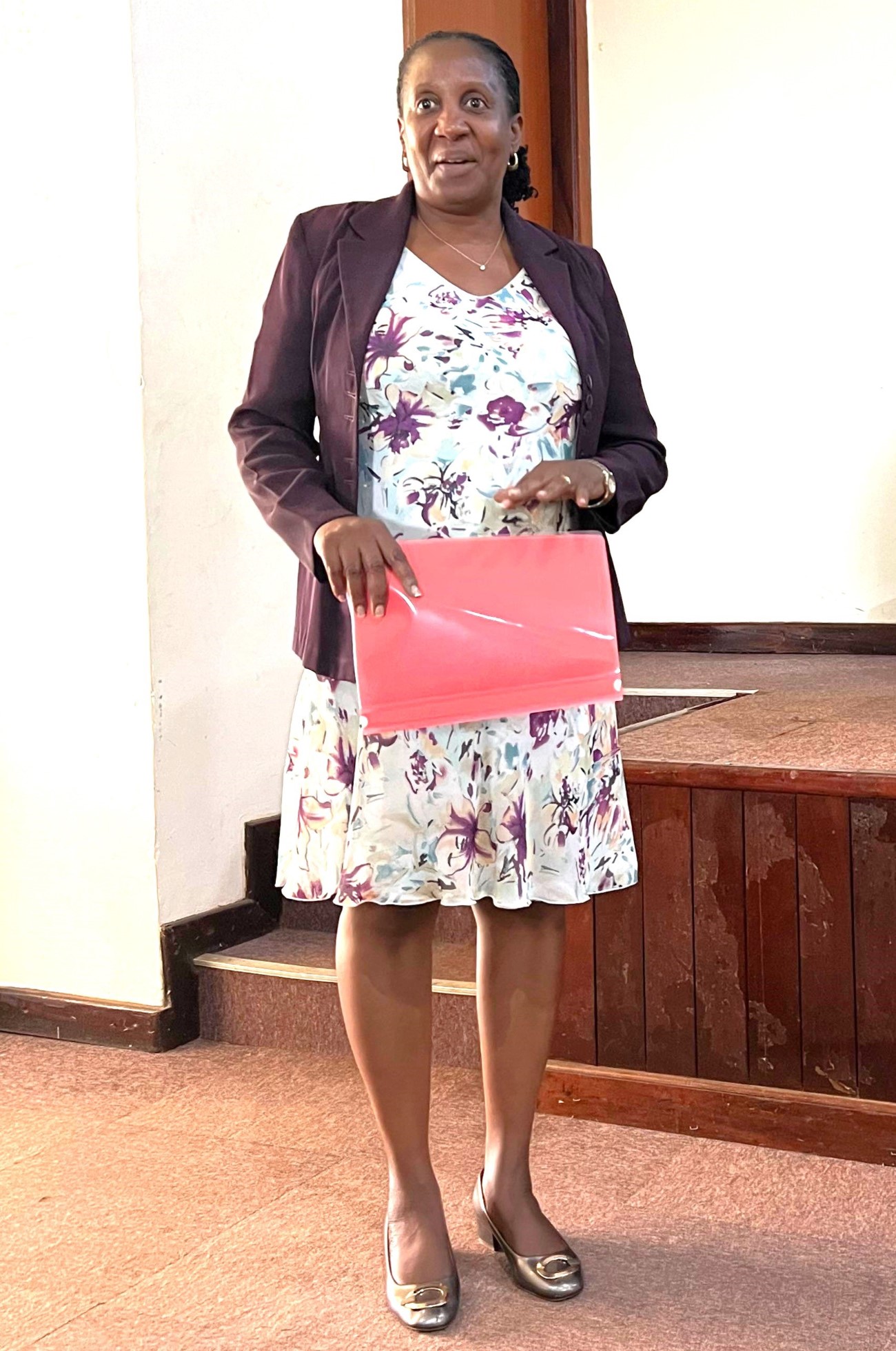
To address the above-mentioned challenges facing the African Continent, Makerere University in partnership with 13 organizations across Europe and Africa developed a project titled, “Sustainable Off-grid solutions for Pharmacies and Hospitals in Africa (SophiA)”. The five-year project that began on 1st October 2021 is funded by the European Union (Project: 101036836 – SophiA – H2020-LC-GD-2-3-2020). At Makerere University, the project is coordinated by Dr. Nicholas Kiggundu, Associate Professor in the Department of Agricultural and Biosystems Engineering, College of Agricultural and Environmental Sciences (CAES).
Piloted in Burkina Faso, Cameroon, Malawi, and Uganda, SophiA aims to provide sustainable off-grid energy solutions to rural and remote health facilities, fostering economic growth and ensuring equitable access to energy and healthcare. Using various technologies, such as photovoltaics, solar thermal, electrical and thermal storage, water treatment and natural refrigerants with low global warming potential, SophiA has developed and manufactured locally innovative, modular, affordable and efficient solar powered systems for providing:
- Safe and clean drinking water, free of bacteria and viruses, and deionised water for medical purposes;
- Hot water and steam production for thermal requirements of the hospitals;
- Cooling of medicines and food at +5°C;
- Low temperature storage of blood plasma and vaccines at -30°C;
- Ultra-low temperature storage of sensitive medication (e.g. some Covid-19 or Ebola vaccines) at -70°C.
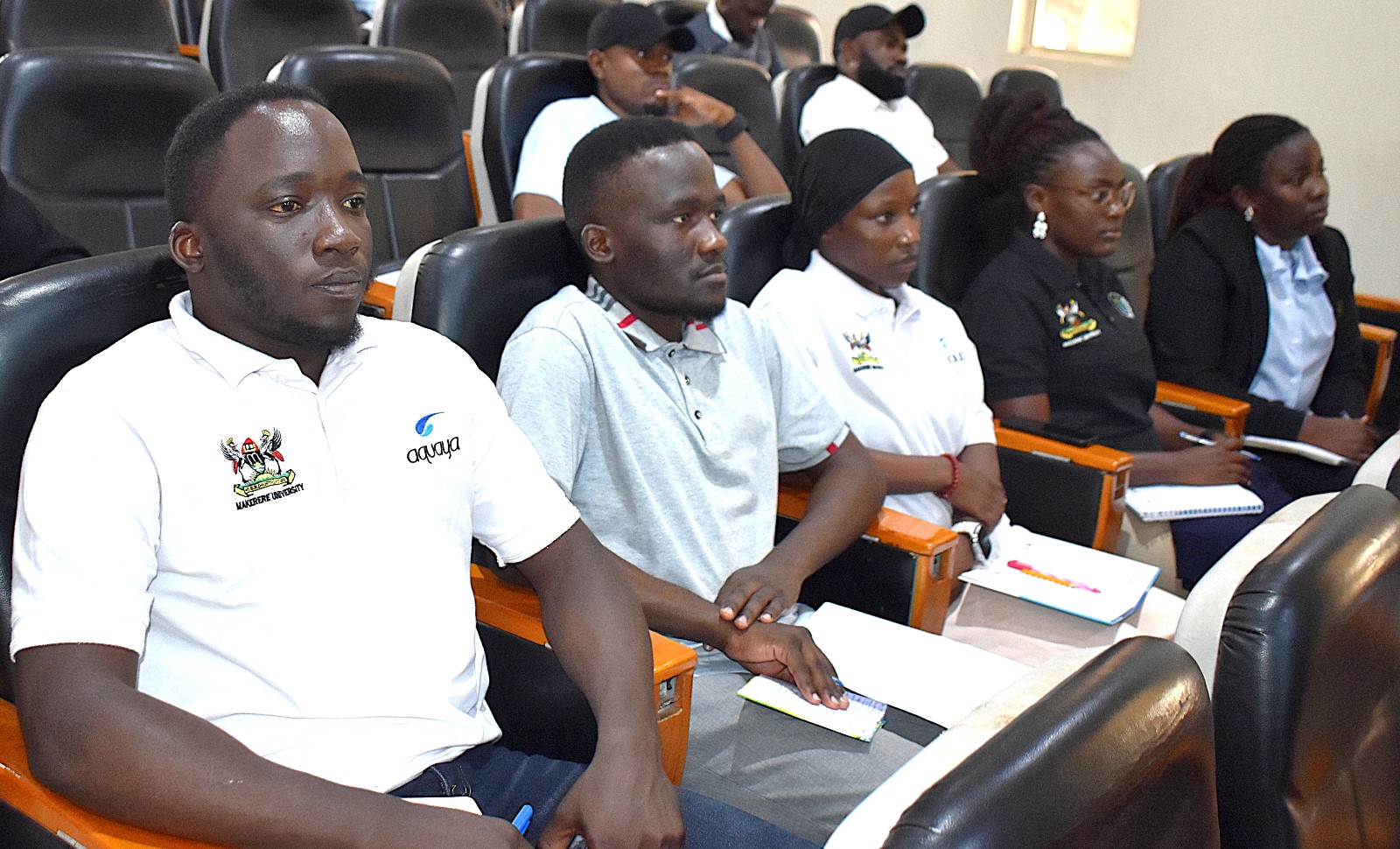
In addition, PV MedPort, a simple and 100% solar-powered solution has been developed and tested as a mobile health care station in small remote areas in 4 different geographical conditions in Africa. The SophiA system has been manufactured in Africa and will provide, for the first-time, innovative solutions based on climate-friendly natural refrigerants to cover cooling demand for three different temperature ranges (-70°C, -30°C and +5°C). The system has been tested and demonstrated at four rural hospitals in remote regions throughout the African continent covering the major geographical regions and different climatic conditions in Burkina Faso, Cameroon, Malawi and Uganda.
SophiA Project initiatives in Uganda
In Uganda, all Health Centre IV hospitals with surgical theatres have been connected to the national grid except Buvuma Health Centre IV, which serves over 120,000 people scattered across 52 islands. Recognizing this gap, the Ministry of Health selected Buvuma Health Centre IV for the SophiA project to demonstrate sustainable off-grid solutions.
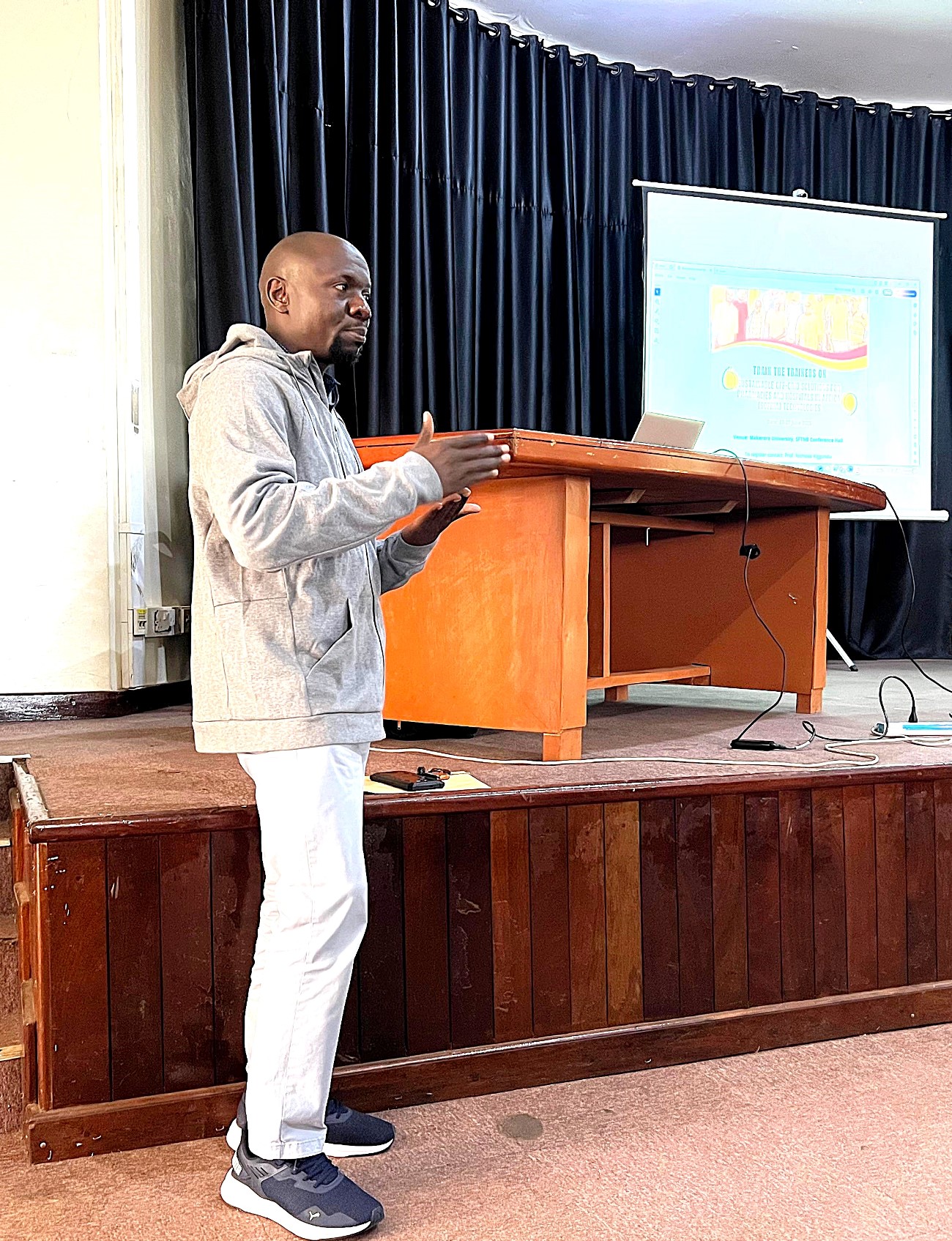
The SophiA System at Buvuma Health Centre IV provides the following services:
- Off-grid electricity supply
- Safe, clean drinking water for patients, staff, and the community
- Hot water and steam systems crucial for maternal care
- Solar-powered cooking and meal preparation
- Cooling systems for surgery and intensive care units
- Refrigeration for medicines at +5°C, blood plasma storage at -30°C, and ultra-low temperature storage (-70°C) for sensitive vaccines such as those for COVID-19 and Ebola
Training of Trainers Workshop
As the SophiA project approaches completion in September 2025, it is vital to establish a skilled pool of technicians capable of handling maintenance and minor repairs of the system components, including solar panels, water treatment units, generators, batteries, and cooking kits.
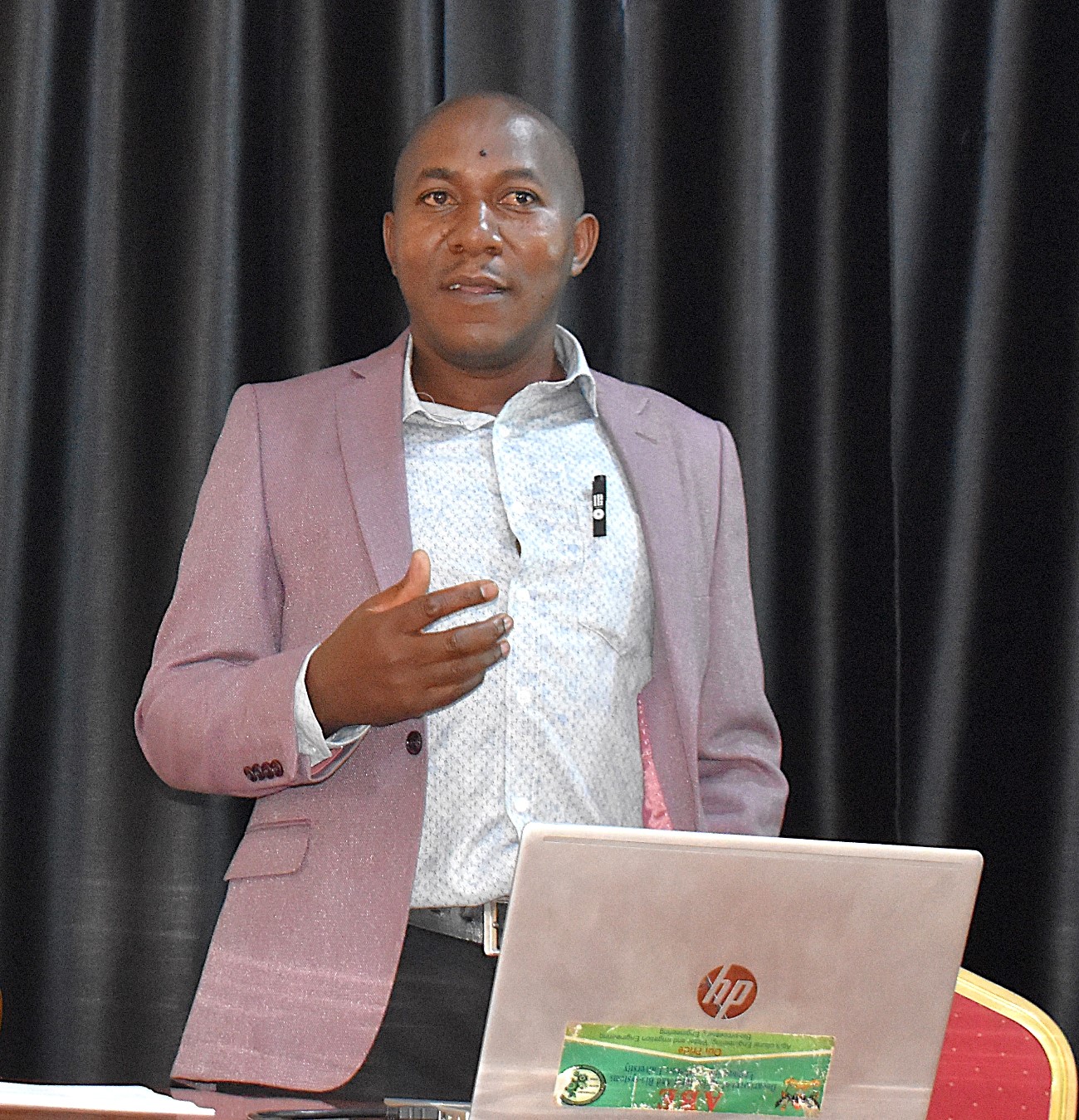
From June 23 to 27, 2025, Makerere University hosted a comprehensive Training of Trainers workshop. The training programme encompassed a diverse range of topics delivered by subject matter experts from institutions, including Makerere University (Department of Agricultural and Biosystems Engineering – CAES, and the College of Engineering, Design, Art and Technology – CEDAT), Hochschule University of Applied Sciences, and Busitema University. Participants were carefully selected from diverse professional backgrounds, including recent engineering graduates from CAES and CEDAT, Makerere University, University technical staff, personnel from Kyambogo University, officials from Buvuma District Works and Health Departments, and electricians from Kampala City. The training sessions were conducted at Makerere University and Buvuma Health Centre IV Hospital.
Training Modules Included:
- Sustainable energy systems and their practical applications
- Energy generation and storage technologies
- Solar water heating: design, operation, maintenance, and performance optimization of solar water heaters, crop dryers, and concentrating solar heaters
- Solar PV technologies in Uganda: cell technology, system design, operations, maintenance, and hands-on practicals for standalone and grid-connected systems
- Public health implications of water quality
- Water treatment and quality management, including protocols, parameters, and case study on the MCDI treatment system
- Water quality testing methodologies
- Introduction to sustainable refrigeration and cooling technologies
- Environmental impact and safety considerations for refrigerants
- Refrigeration cycles and component overview
- Life cycle assessment of SophiA technologies
- Thermal energy storage within the SophiA system
- Steam as a productive energy source
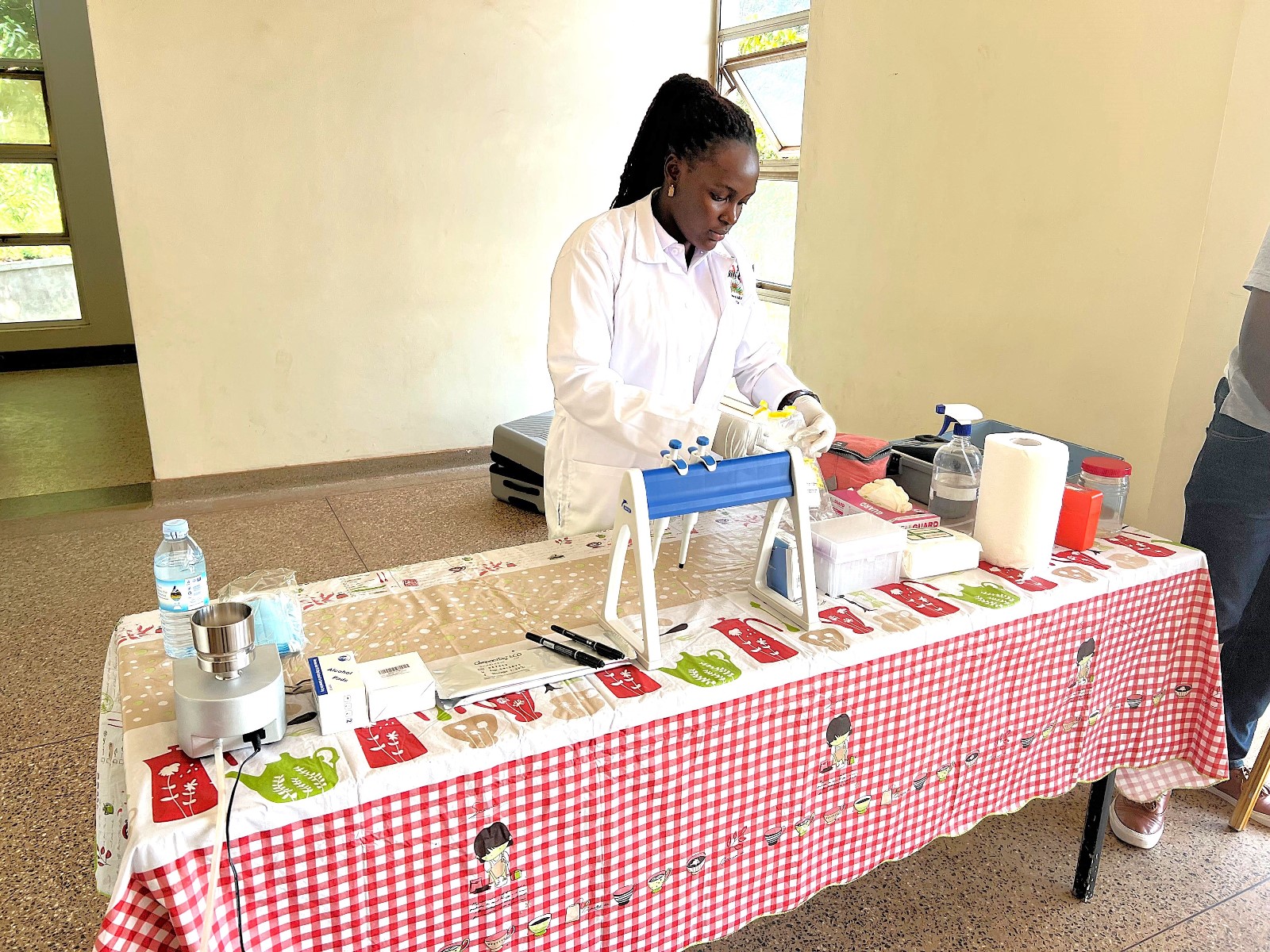
The Training Sessions
Day One: Introduction to foundational concepts in solar energy technologies
The first day of the SophiA Train the Trainers Workshop focused on building foundational knowledge in sustainable and solar energy systems. Led by Dr. Peter Tumutegyereize and Dr. Francis Mujjuni, participants explored a range of technologies and applications critical to clean energy deployment.
Key topics included:
Sustainable Energy Systems: Introduction to renewable energy systems including bioenergy, hydro, wind, geothermal, hydrogen fuel cells, and battery storage.
Solar Radiation & Geometry: Understanding solar constants, irradiance, and the impact of atmospheric conditions on solar performance.
Solar Thermal Technologies: Detailed look at solar water heating systems (FPCs and ETCs), maintenance, sizing, and solar dryers for agricultural and industrial use.
Photovoltaic (PV) Systems: Working principles, types of PV cells, performance factors, and diagnostics. Practical testing techniques and metrics like Voc, Isc, MPP, and PR were discussed.
Simulation & Application: Olivia Nakiwanuka demonstrated a PVsyst-based simulation of a 2.55 kWp standalone system for a conference hall, showing a high solar fraction (97.88%) and low LCOE (USD 0.03/kWh).
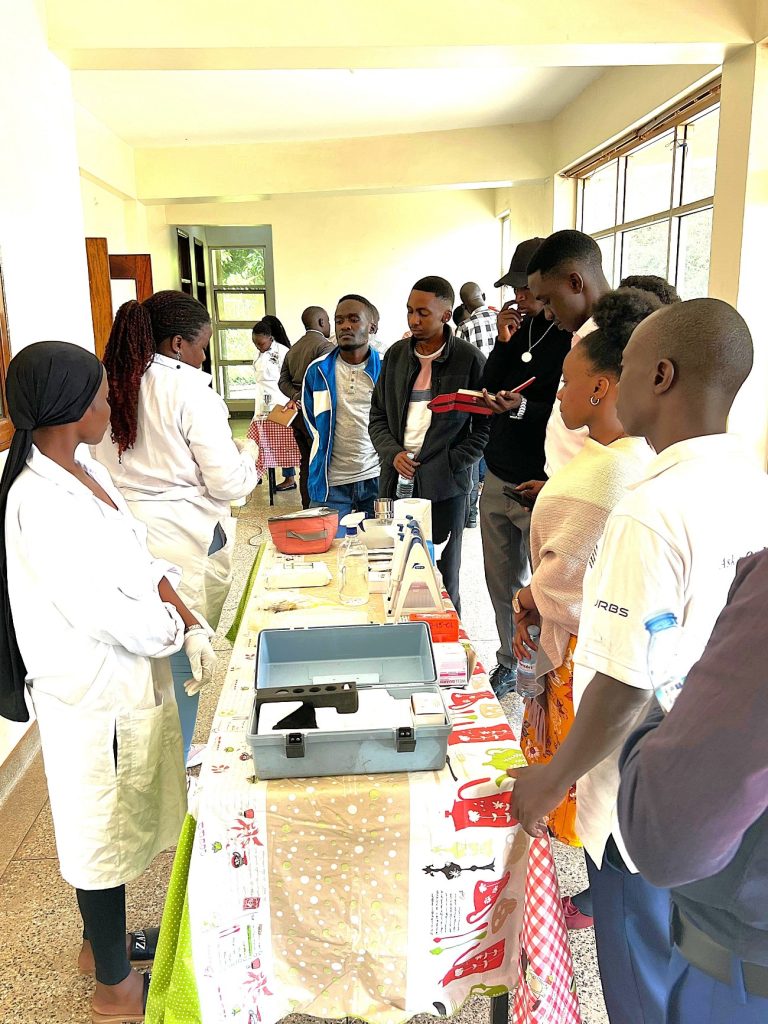
The sessions emphasized practical skills, performance analysis, and real-world application, equipping participants to train others and support solar adoption, especially in rural and off-grid settings.
Day Two: Water Treatment Technologies
The second day focused on water treatment technologies relevant to low-resource healthcare settings. Facilitated by Sneha De and Mr. Duc Dinh Ngoc from Hochschule Karlsruhe University, sessions covered technical, environmental, and operational challenges, with contributions from Dr. Joshua Wanyama on water quality management and Dr. Prossie Nakawuka on practical water testing.
Key challenges addressed included unreliable water supply and contamination in healthcare facilities, emphasizing the need for decentralized water treatment, especially in rural areas.
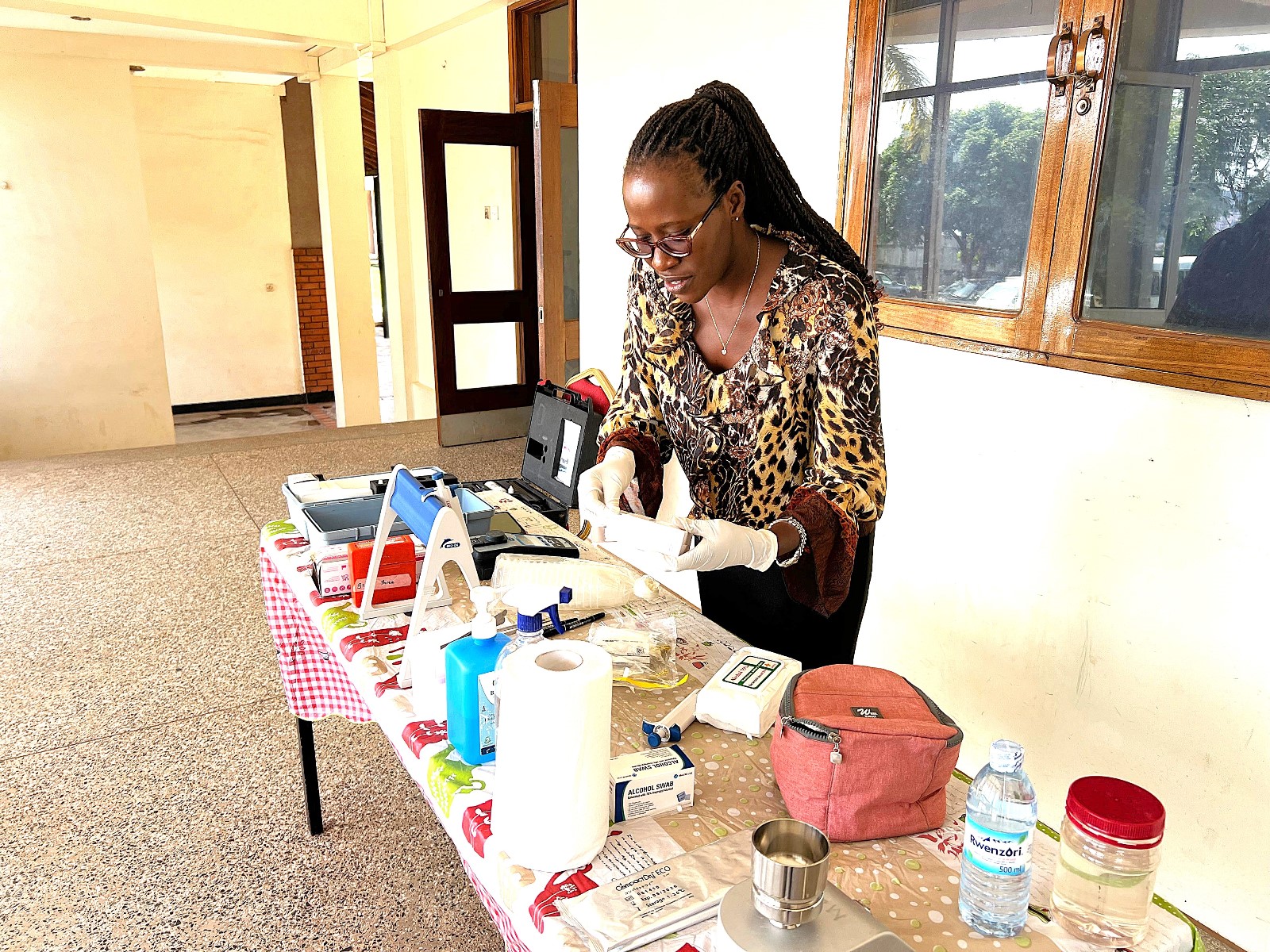
Sneha De reviewed biological and physical/chemical water treatment methods, highlighting technologies such as activated sludge, filtration, membrane bioreactors, and advanced disinfection techniques. The SophiA modular water treatment system, integrating ultrafiltration and membrane capacitive deionisation (MCDI), was introduced as a scalable solution for producing safe drinking and deionised water for medical use.
Mr. Duc Dinh Ngoc trained participants on the MCDI technology, an energy-efficient method for salt and fluoride removal suitable for low-salinity water.
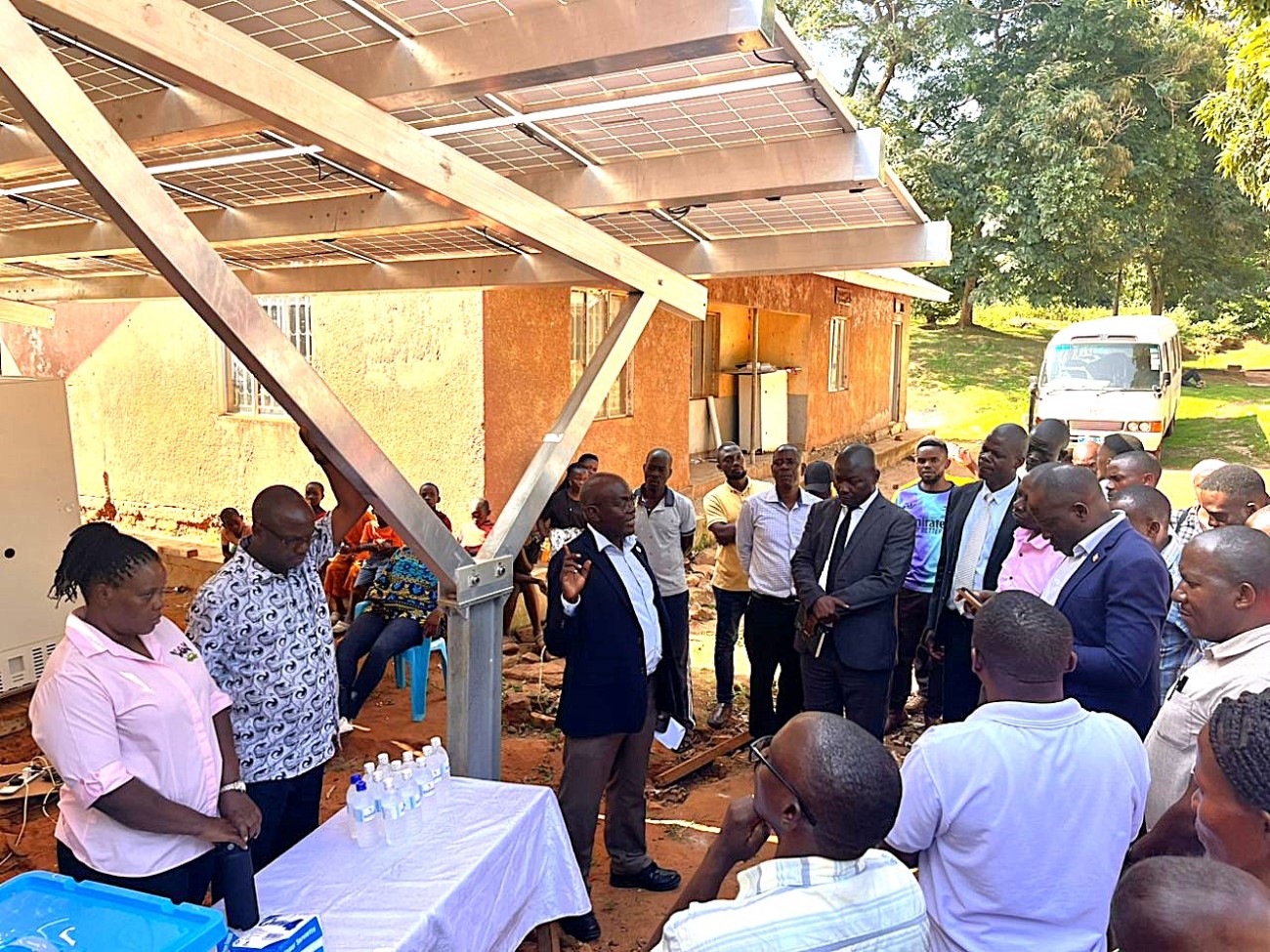
Dr. Joshua Wanyama discussed the water quality management protocols, outlining key physical, chemical, and biological water parameters and monitoring strategies, including modern IoT-based tools, to ensure water safety and public health.
The day concluded with a hands-on lab session by Dr. Prossie Nakawuka, where participants practiced water quality testing using turbidimeters, incubators, and filtration techniques.
Overall, Day Two combined theoretical insights, technology demonstrations, and practical skills, preparing participants to implement sustainable water treatment and quality management systems in healthcare environments.
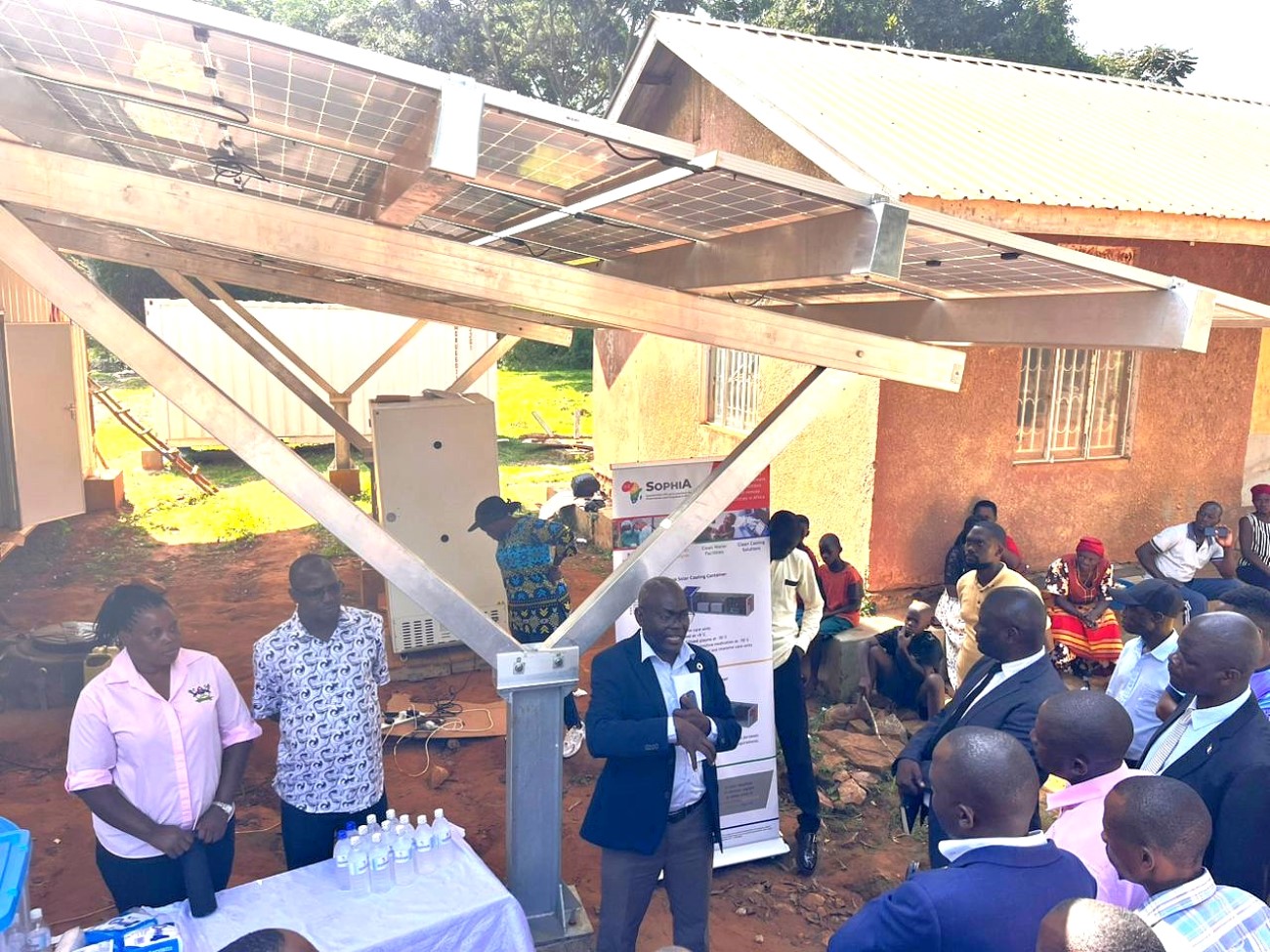
Day Three: Refrigeration and Cold Storage
The third day of the SophiA workshop focused on sustainable refrigeration and cold storage technologies tailored for healthcare in Sub-Saharan Africa. Experts discussed energy-efficient, climate-friendly cooling solutions vital for vaccine storage, medicines, and diagnostics, especially in off-grid and rural settings.
Key highlights included the introduction of solar-powered and biomass-based refrigeration systems, thermal energy storage methods, and the use of natural refrigerants like propane, ammonia, and CO₂ as environmentally safer alternatives. Presentations emphasized the critical role of refrigeration in healthcare and the urgent need to replace harmful chemicals with sustainable technologies.
Sessions covered real-world applications such as the SophiA cooling containers in Burkina Faso, safety protocols for flammable refrigerants, and the environmental and economic benefits of solar refrigeration systems assessed through life cycle analysis.
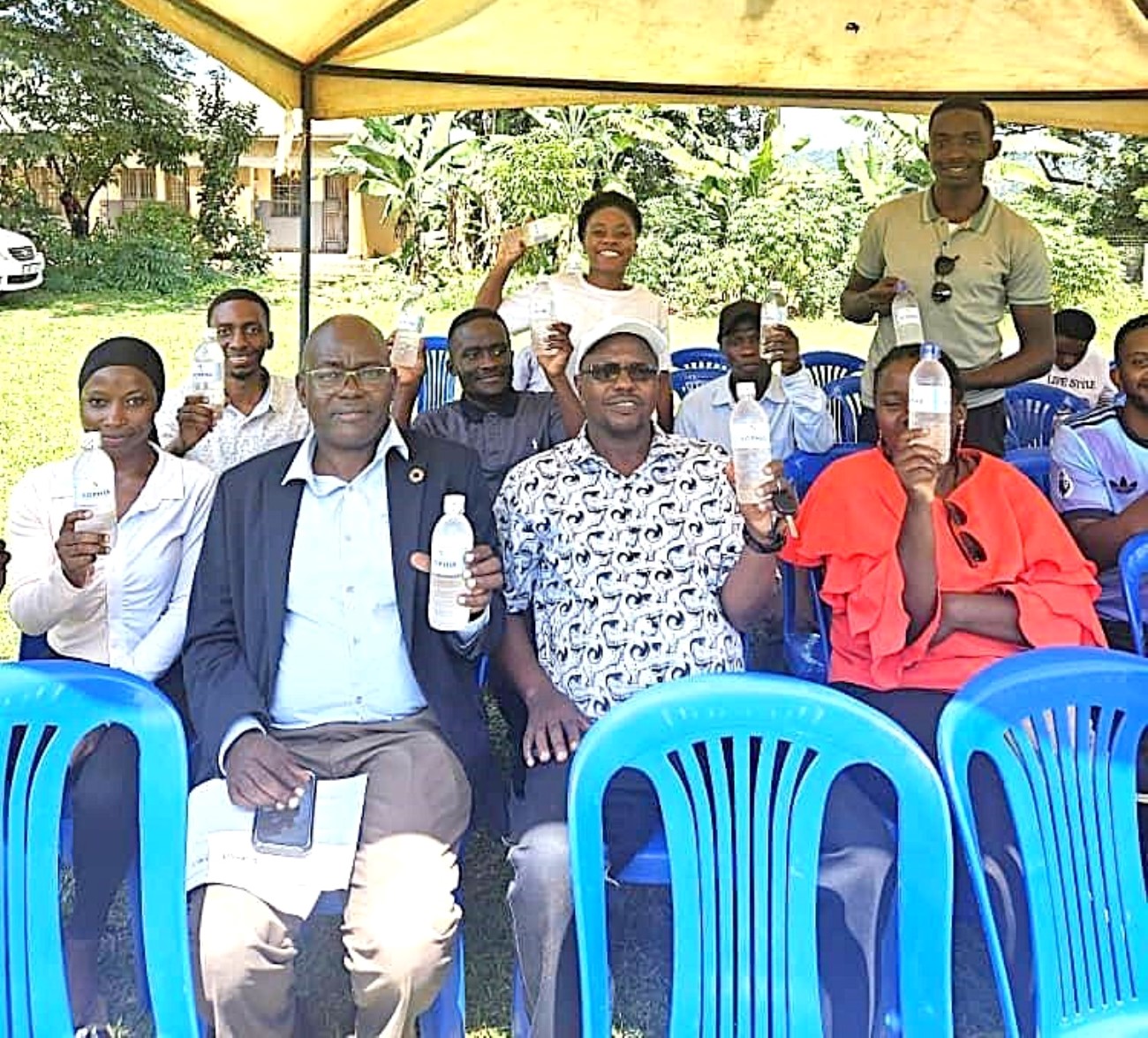
The day ended with an interactive quiz and discussion, reinforcing learning and encouraging participants to apply sustainable cooling practices in their communities.
Day Four: World Refrigeration Day & Field Visit to Buvuma Island
The fourth day of the SophiA Train the Trainers workshop was dedicated to the celebration of the World Refrigeration Day and a field excursion to Buvuma Island, providing participants with a unique opportunity to witness the SophiA system in action. The day was coordinated by Dr. Sarah Bimbona and Dr. Nicholas Kiggundu, who led the delegation to Buvuma Health Centre IV, the pilot site for the SophiA installation in Uganda.
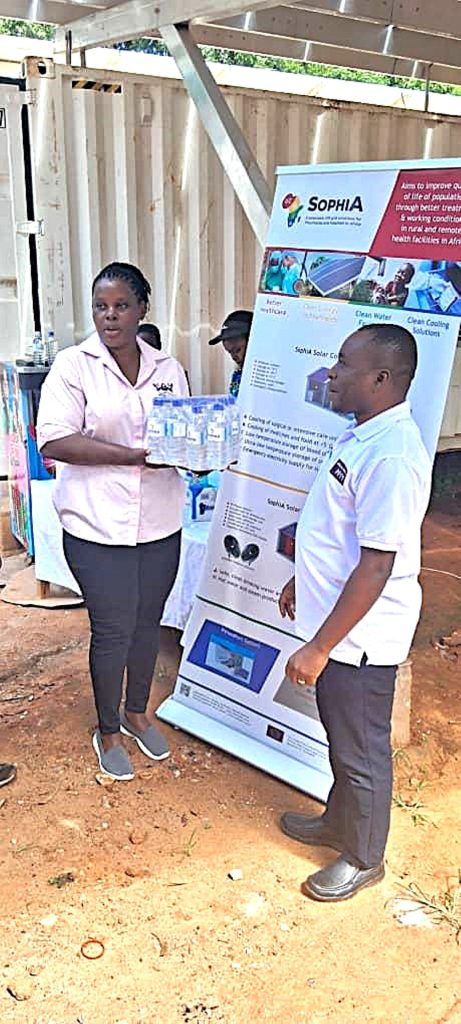
The visit served as both a practical extension of the previous day’s technical sessions and a community engagement event. Participants were able to observe the installed SophiA system, which integrates solar-powered refrigeration, water treatment and steam generation technologies designed for off-grid healthcare settings. During the visit, Dr. Kiggundu provided a detailed briefing to local stakeholders, including representatives from the Buvuma District Local Government, delegates from the Buganda Kingdom, and members of the local community. He explained how the SophiA system will enhance healthcare delivery on the island through reliable cold storage for vaccines and medicines, access to clean drinking water, and steam generated for cooking and use in the maternity wards.
As part of the long-term sustainability plan for the SophiA system, the launch of SophiA Water was announced, an entrepreneurial initiative designed to generate revenue locally for the operation and maintenance of the system.
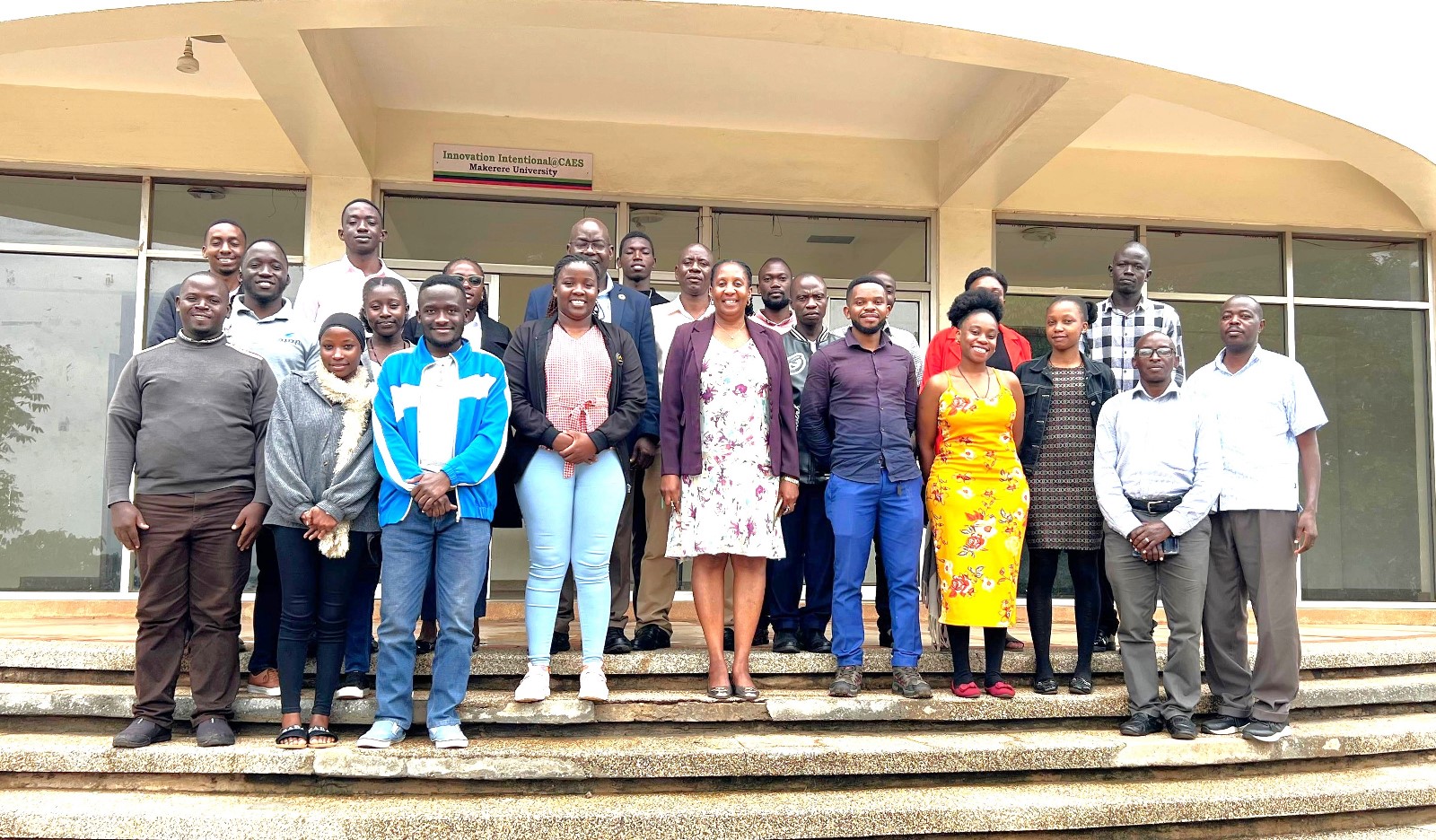
The field trip ended with a certificate awarding ceremony in appreciation of the participants’ dedication and active engagement throughout the training programme.
Agriculture & Environment
APRC Trains Graduate Students & Stakeholders in the Use of the African Agriculture Adaptation Atlas
Published
1 week agoon
July 3, 2025
The Agricultural Policy Research Centre (APRC), housed within the College of Agricultural and Environmental Sciences (CAES) at Makerere University, continues to play a pivotal role in shaping Uganda’s agricultural future through evidence-based policymaking. With a mission to ensure that agricultural policies are grounded in empirical research and data, APRC is actively investing in capacity-building initiatives that empower researchers, policymakers, and development actors.
In a significant stride toward building climate resilience in African agriculture, APRC recently organized a two-day intensive training workshop focused on the African Agriculture Adaptation Atlas (AAAA) – a state-of-the-art, web-based decision-support platform that facilitates the integration of climate data into agricultural planning and policy.

The workshop, held on Wednesday 25th and Thursday 26th June 2025 at the School of Agricultural Sciences, Makerere University, targeted two key groups: graduate students on the first day, and university faculty, government officials, and development practitioners on the second. This structure ensured tailored learning experiences for both emerging and seasoned professionals, helping to bridge the gap between academic research and real-world policy implementation.
The African Agriculture Adaptation Atlas (AAAA) is designed to provide dynamic, data-rich visualizations that support informed decision-making in agriculture and food systems across the continent. Through interactive maps and analytical tools, users can explore projected climate impacts, evaluate risks, and identify localized, climate-smart adaptation strategies.

Throughout the sessions, participants received hands-on training in a broad range of AAAA functionalities, including:
- Leveraging the Atlas for research and policy communication: Enhancing the ability of scientists and policy actors to translate complex climate data into actionable insights;
- Assessing projected climate impacts and associated agricultural risks: Essential for forward-looking planning and risk mitigation;
- Identifying climate-smart investment options, with a particular focus on the livestock sector, which is especially vulnerable to climate shocks;
- Analysing gendered vulnerabilities: Examining how climate change disproportionately affects women in agricultural communities;
- Understanding the implications of heat stress on agricultural productivity: Supporting targeted interventions to protect producers and their livelihoods;
- Estimating the economic returns of adaptation strategies: Aiding in prioritizing investments and allocating limited resources effectively.

Prof. Bernard Bashaasha, the APRC Coordinator, emphasized the importance of the training in advancing Africa’s adaptation agenda. “As climate change continues to threaten food security and disrupt livelihoods across the continent, tools like the AAAA, and the skills to use them effectively are essential. They empower decision-makers to craft policies that are adaptive, inclusive, and rooted in science,” he noted.
The workshop was coordinated by Dr. Florence Rwiza, Lecturer in the Department of Agribusiness and Natural Resource Economics at CAES.
More photos from the Training






Agriculture & Environment
NbS4Tea Project Team Makes Great Progress, Deploys Drones for Data Collection
Published
2 weeks agoon
June 24, 2025
****Funded by the Danish Fellowship Centre under Denmark’s Ministry of Foreign Affairs, NbS4Tea is a five-year initiative aimed at enhancing climate resilience and tea productivity in Uganda.
Launch of drones for data collection
The Nature-based Solutions for Tea (NbS4Tea) project has registered a significant milestone with the successful deployment of drones to improve environmental and agricultural data collection.
On 19th June 2025, the project team officially launched the drones at the Rwebitaba Tea Research Centre in Kyenjojo District, the project’s main research hub. The launch event included hands-on training sessions by Mr. Timothy Mutungi, a certified Remote Sensing Drone Pilot. Mr. Mutungi provided detailed instruction on drone operation, safety procedures, and data acquisition techniques specifically tailored to the project’s goals. The training was attended the core NbS4Tea researchers as well as students supported by the project.

By utilizing drone technology, the team will be able to capture high-resolution imagery and gather critical environmental data across vast tea-growing areas. This will enable more precise assessments of biodiversity, soil health, water use, and overall ecosystem services. The valuable insights generated will guide the development of sustainable, nature-based agricultural practices with the potential for widespread adoption throughout the tea industry.
About the NbS4Tea Project
NbS4Tea is a five-year initiative aimed at enhancing climate resilience and tea productivity in Uganda. Funded by the Danish Fellowship Centre under Denmark’s Ministry of Foreign Affairs and led by Dr Emmanuel Arthur from Aarhus University, the project is being implemented through a consortium of Ugandan and Danish institutions namely: Makerere University, the National Agricultural Research Organization (NARO), Uganda, Uganda Tea Association, Aarhus University, Denmark, and Kick-start International.

The primary objective of the project is to sustainably close the tea yield gap in Uganda by developing research-driven, nature-based solutions that enhance the climate resilience of tea production systems. This involves identifying climate-resilient tea varieties, integrating tea prunings and banana by-products, utilizing nitrogen-fixing agroforestry trees, and improving irrigation management. The approach emphasizes socio-economic feasibility, capacity building in research, and a market-oriented, multi-stakeholder collaboration to ensure both environmental and economic sustainability.
At Makerere University, the project is coordinated by Dr Alex Nimusiima from the Department of Geography, Geo-Informatics and Climatic Sciences at CAES. Other Project members are; Dr Grace Nakabonge from the Department of Forestry, Biodiversity and Tourism; Dr Prossy Nakawuka from the Department of Agricultural and Bio-systems Engineering; Dr Twaha Ali Basamba from the Department of Agricultural Production; and Dr Alice Turinawe from the Department of Agribusiness and Natural Resource Economics.

Specific objectives
- Identify and quantify climate change impacts on tea yield and quality based on historical and newly obtained data and novel data mining methods.
- Screen, select and recommend tea varieties adapted to abiotic (drought and heat) and biotic stresses (diseases and pests).
- Develop new knowledge on the potential of local waste biomass (tea prunings, banana pseudostems and peels) as soil amendments- mulch, compost, biochar, to recycle nutrients, improve soil fertility, increase carbon sequestration and alleviate drought.
- Reveal NbS through agroforestry combined with organic mulch, irrigation and resilient tea varieties that increase biodiversity and tea yield.
- Innovate new methods to enhance tea production under climate change through rainwater harvest and climate-smart irrigation infrastructure.
- Empower vulnerable groups (women, youth, and people with disabilities) in tea production and processing to ensure multi-actor involvement and socio-economic benefit outreach of the proposed NbS in tea cultivation and production.
- Identify export market strategies for NbS tea products, aligned with consumer preferences.

Progress thus far
Launched in January 2024, the project, organized in five work packages, has registered significant progress. Each of the work packages listed below supports one PhD student and one Masters’ student. The PhD students are: i) Mr. Adiga Hassan from the Department of Geography, Geo-Informatics and Climatic Sciences at CAES conducting research under work package 1; ii) Ms. Sarah Namayengo from the Department of Forestry, Biodiversity and Tourism conducting research under work package 2; Ms. Vivian Namutebi from the Department of Soil Science and Land Use Management undertaking research on work package 3; Mr. Keneth Chelimo from the Department of Agricultural and Biosystems Engineering conducting his research under work package 4; and Ms. Moreen Asasira from the Department of Agribusiness and Natural Resource Economics focusing on work package 5. The Masters students are: i) Ms. Evelyn Katasi from the Department of Environmental Management at CAES (work package 1), Mr. Vereriano Turyahebwa from Department of Forestry, Biodiversity and Tourism (work package 2); Mr. Ben Okurut from the Department of Soil Science and Land Use Management (work package 3); Mr. Augustine Okot from the Department of Agricultural and Biosystems Engineering (work package 4); and Mr. Augustine Kigozi from the Department of Agribusiness and Natural Resource Economics (work package 5)

Work packages and achievements registered
Work Package 1: Climate change impacts on tea yield and quality – Headed by Dr. Alex Nimusiima
This work package centres on the analysis of historical and projected climate conditions in the study area. It examines how current climate patterns influence tea production, as well as the potential effects of future climate change on tea yield and quality.
Progress
i) A household survey assessing the socio-economic status of tea farmers and the effects of climate variability on their livelihoods has been completed.
ii) The collected data has been cleaned, and the Masters student supported under this work package is currently writing her thesis based on the survey findings.
iii) A historical climate analysis of the study area has been conducted by the PhD student, who is now preparing a manuscript.

Work Package 2: Screening & selecting tea genotypes for resilience to abiotic and biotic stresses – Headed by Assoc. Prof. Grace Nakabonge
This work package focuses on evaluating existing tea genotypes for their resistance to pests and diseases, using chlorophyll fluorescence imaging as a diagnostic tool.
Progress
i) A screen house has been constructed to serve as the experimental site.
ii) Germplasm from two tea varieties is currently being cultivated in the screen house in preparation for the upcoming experiments.
iii) A drone has been acquired to assist in data collection for this work package.

Work Package 3: Evaluation of NbS for climate resilience, higher yield and biodiversity- Headed by Assoc. Prof. Twaha Ali Basamba
This focuses on the characterization of mulch and biochar derived from tea prunings to improve soil health. It also aims to quantify the added value of Nature-based Solutions (NbS) in enhancing tea productivity, promoting climate resilience, and supporting biodiversity.
Progress
- So far, Biochar has been produced from tea prunings and characterized.
- The Masters student supported under this work package is writing his thesis on the results of biochar characterization.

Work Package 4: Innovating smart and scalable irrigation technology for improved tea production- Headed by Dr. Prossie Nakawuka
This work package aims to develop and evaluate smart, scalable irrigation solutions to boost tea production. It focuses on assessing how irrigation impacts tea yield and quality, measuring water use efficiency, and analyzing the economic returns of irrigation practices. Additionally, it explores deficit irrigation and climate-resilient strategies to ensure sustainable tea farming in changing environmental conditions.
Progress
- The irrigation infrastructure is now in place and fully operational at Rwebitaba Tea Research Centre in Kyenjojo District.
- The experimental plots for irrigation experiments are already in place with water pipes.

Work package 5: Socio-economic assessment of tea-agroforestry and selected tea varieties – Headed by Dr. Alice Turinawe
This work package emphasizes co-creation within multi-stakeholder innovation networks to evaluate the economic feasibility and market access of tea agroforestry systems. It also focuses on promoting gender balance and understanding consumer valuation of Nature-based Solutions (NbS) tea from Uganda.
Progress
To date, two co-creation workshops have been successfully conducted and the Masters student under this work package is currently analyzing the workshop results as part of their research.

Expected outputs and outcomes
- Increased tea production, productivity, and biodiversity through the adoption of NbS.
- Increased research and technical capacity of Makerere and R-ZARDI.
- Holistic stakeholder insight on economic feasibility, consumer acceptance and market access strategies, especially for vulnerable groups in the tea value chain.
- Increased job prospects for youth and women in tea production sub-sectors.
- Improved social status and increased incomes of tea farmers, traders, and exporters.
- Improved economic and environmental quality by recycling biomass waste into value-added products dedicated to soil enhancement.
- 4+ high-yielding tea genotypes adapted to drought and heat, diseases and pests.
- 15+ scientific articles, conference presentations.
- Five PhDs and Five MSc degrees.
- Market access assessment and empowerment.

Details on the project: https://news.mak.ac.ug/2024/01/new-caes-project-to-improve-tea-production-in-uganda/
More photos from the event



Trending
-

 Education7 days ago
Education7 days agoAdmission List to Bachelor of Education External (BED) 2025/26 -Private Sponsorship
-

 General1 week ago
General1 week agoUndergraduate Admission List Self Sponsorship Scheme 2025/2026
-

 General2 weeks ago
General2 weeks agoMature Age Scheme Exam Results for 2025/2026
-

 General3 days ago
General3 days agoRe-advert: Admission to Undergraduate Programmes 2025/2026
-
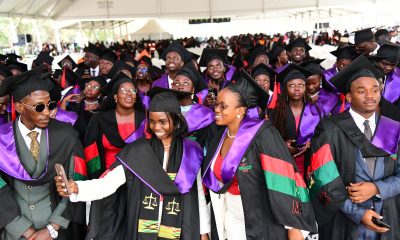
 General1 week ago
General1 week agoAdmission Lists for – Bachelor of Laws 2025-26
